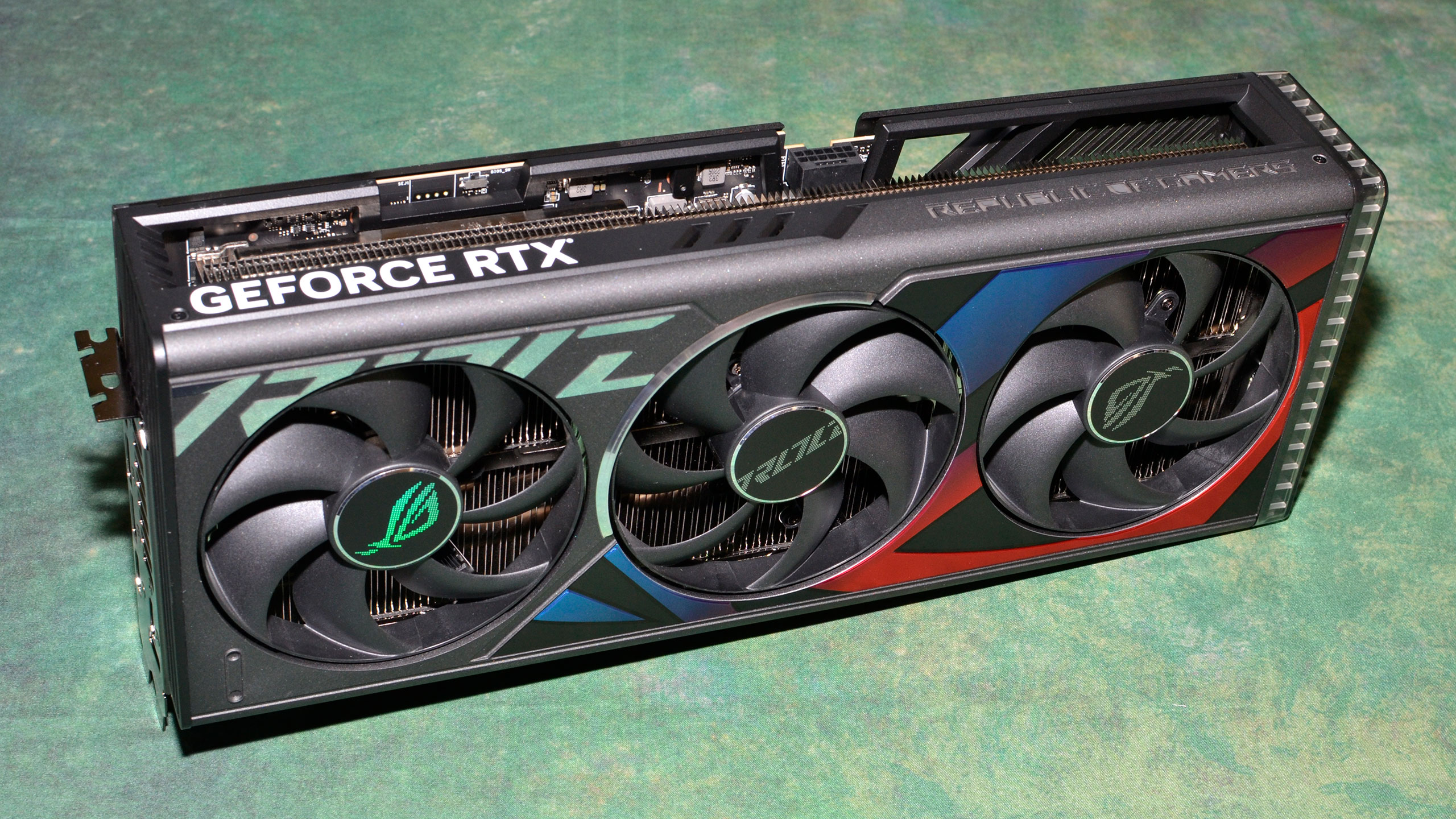Why you can trust Tom's Hardware
We'll start with the performance that matters most: 4K at maxed out settings. If you're using a 1080p monitor — even one with an extreme refresh rate — the RTX 4090 will almost certainly be overkill. That's less true if you're playing games with lots of ray tracing effects, but we've covered that elsewhere.
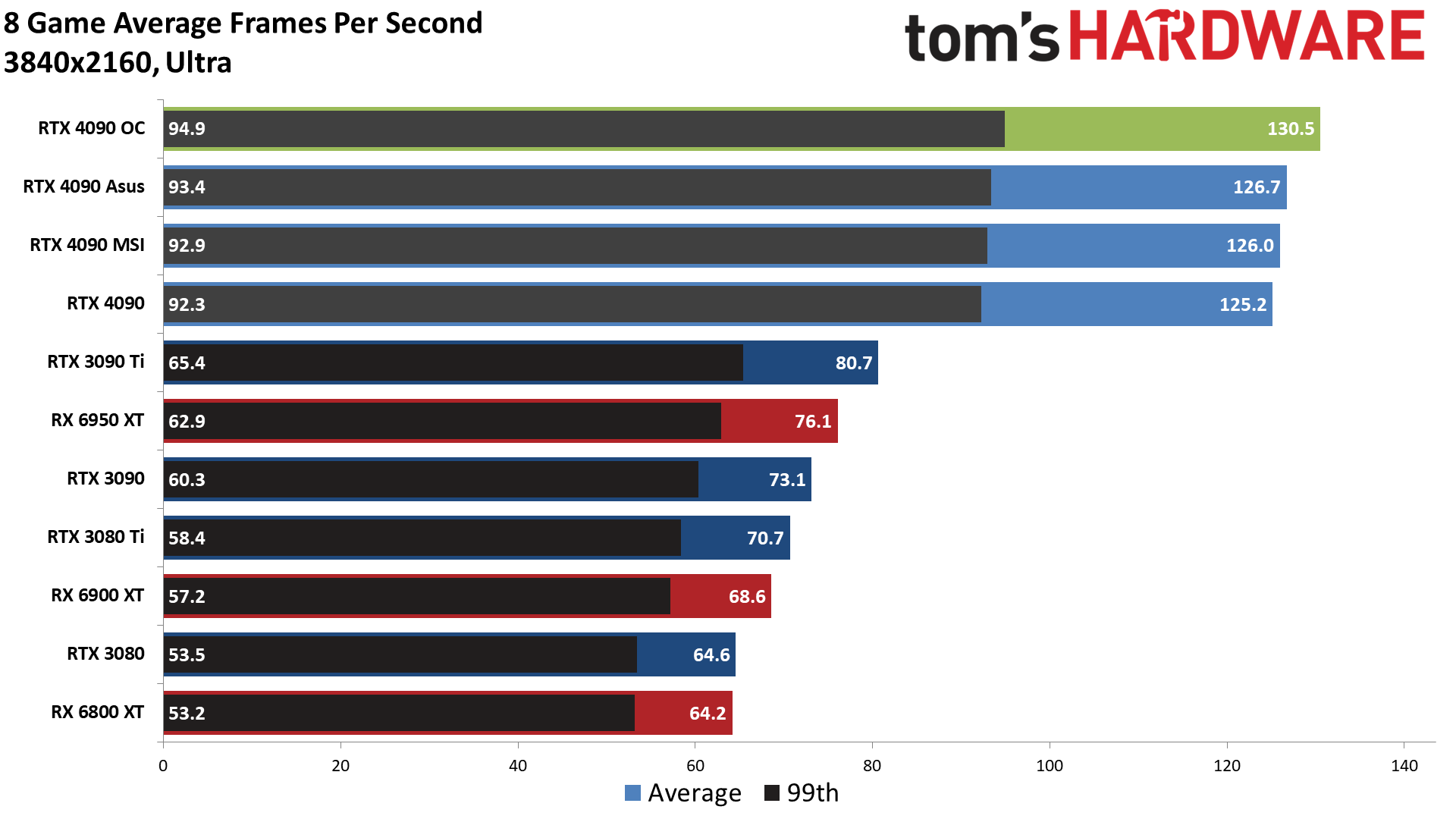
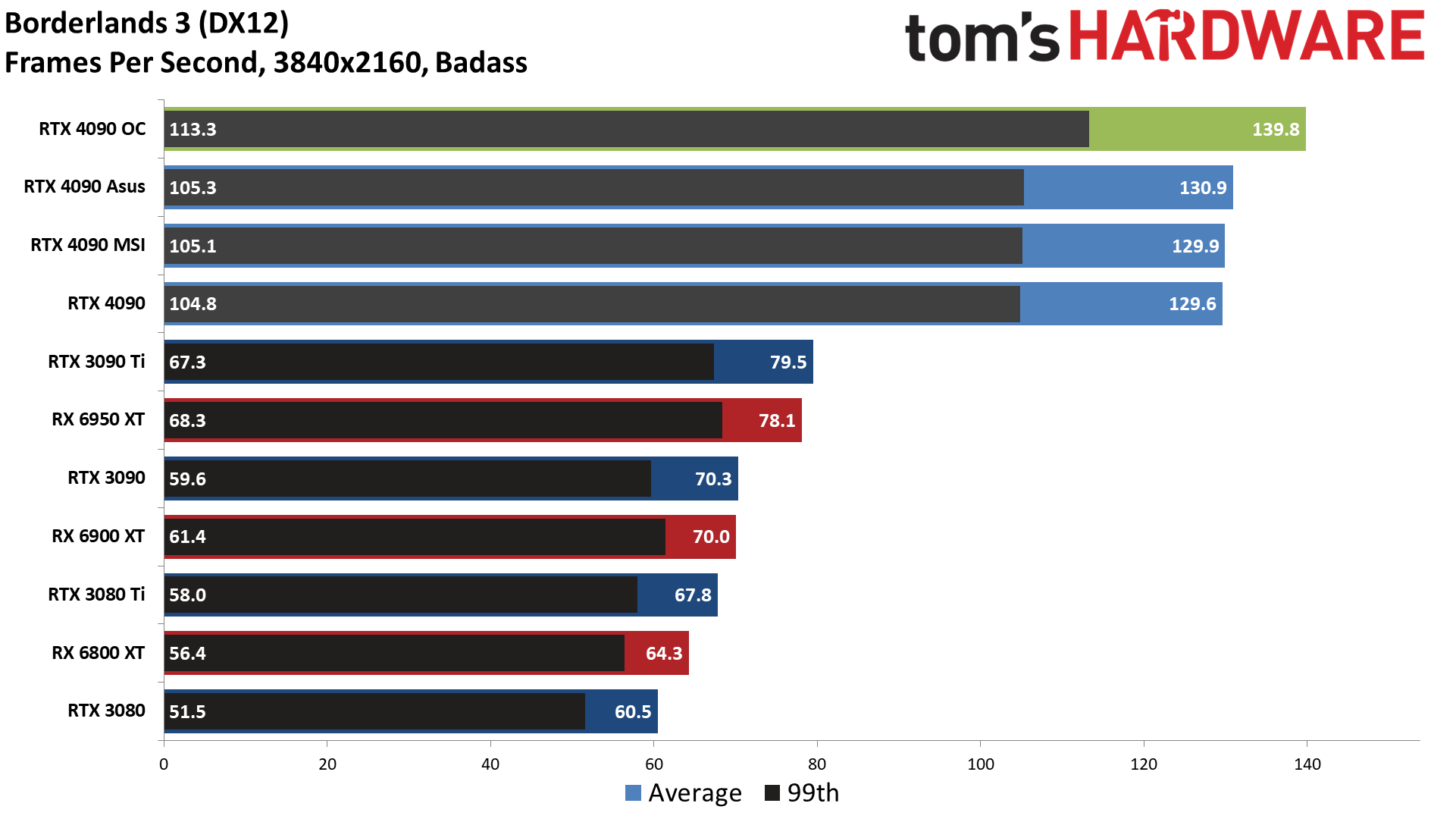
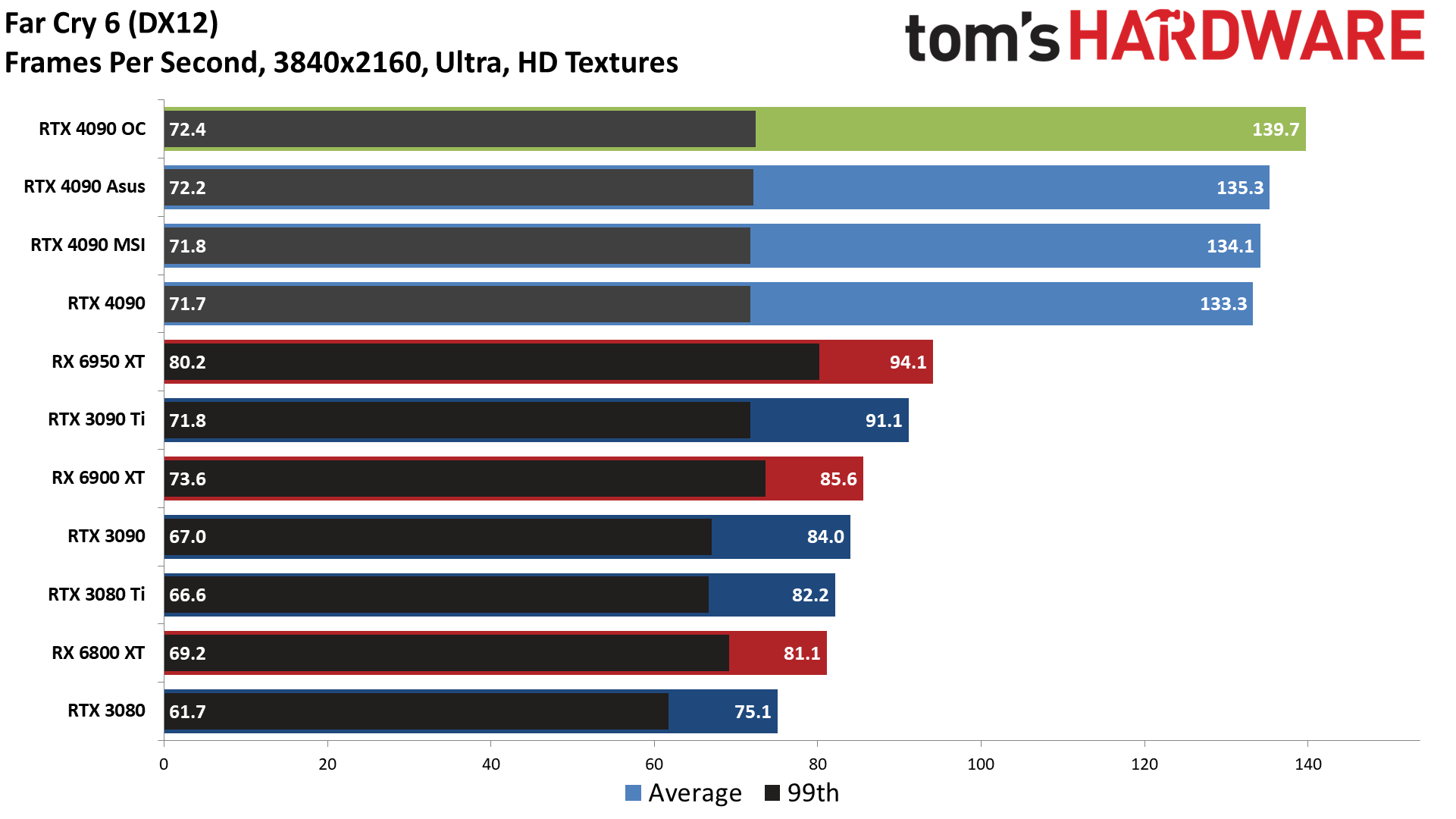
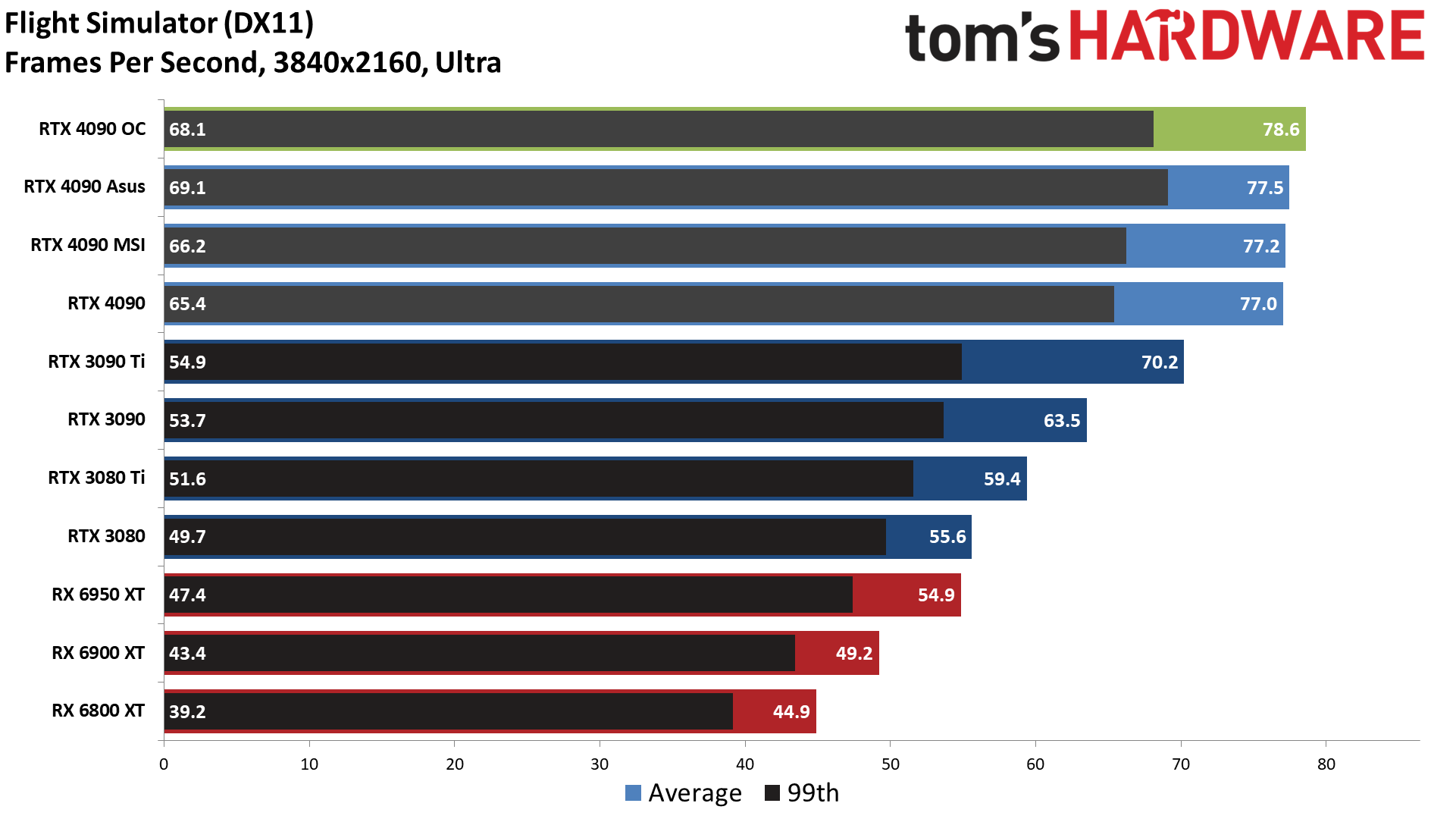
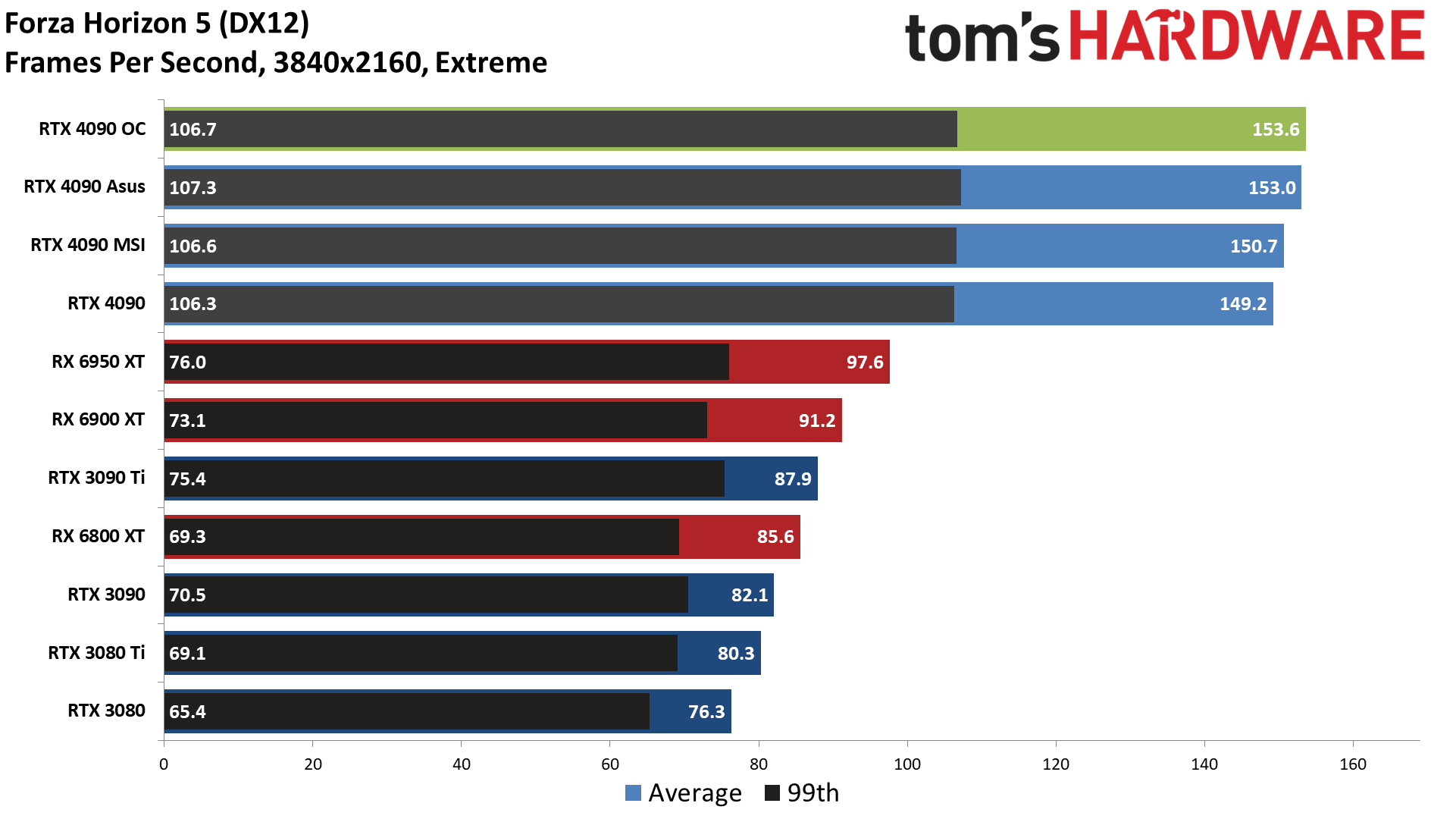
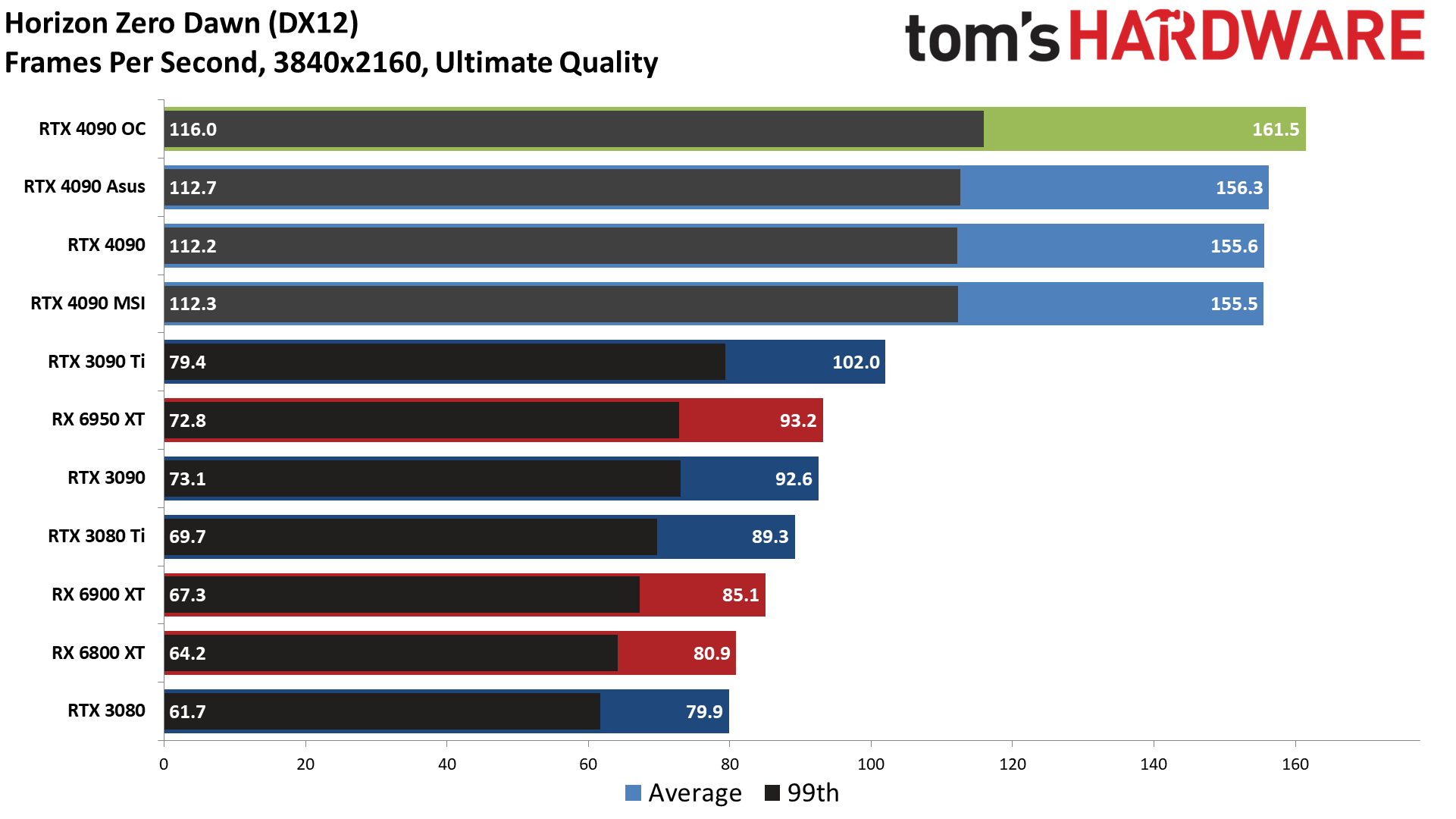
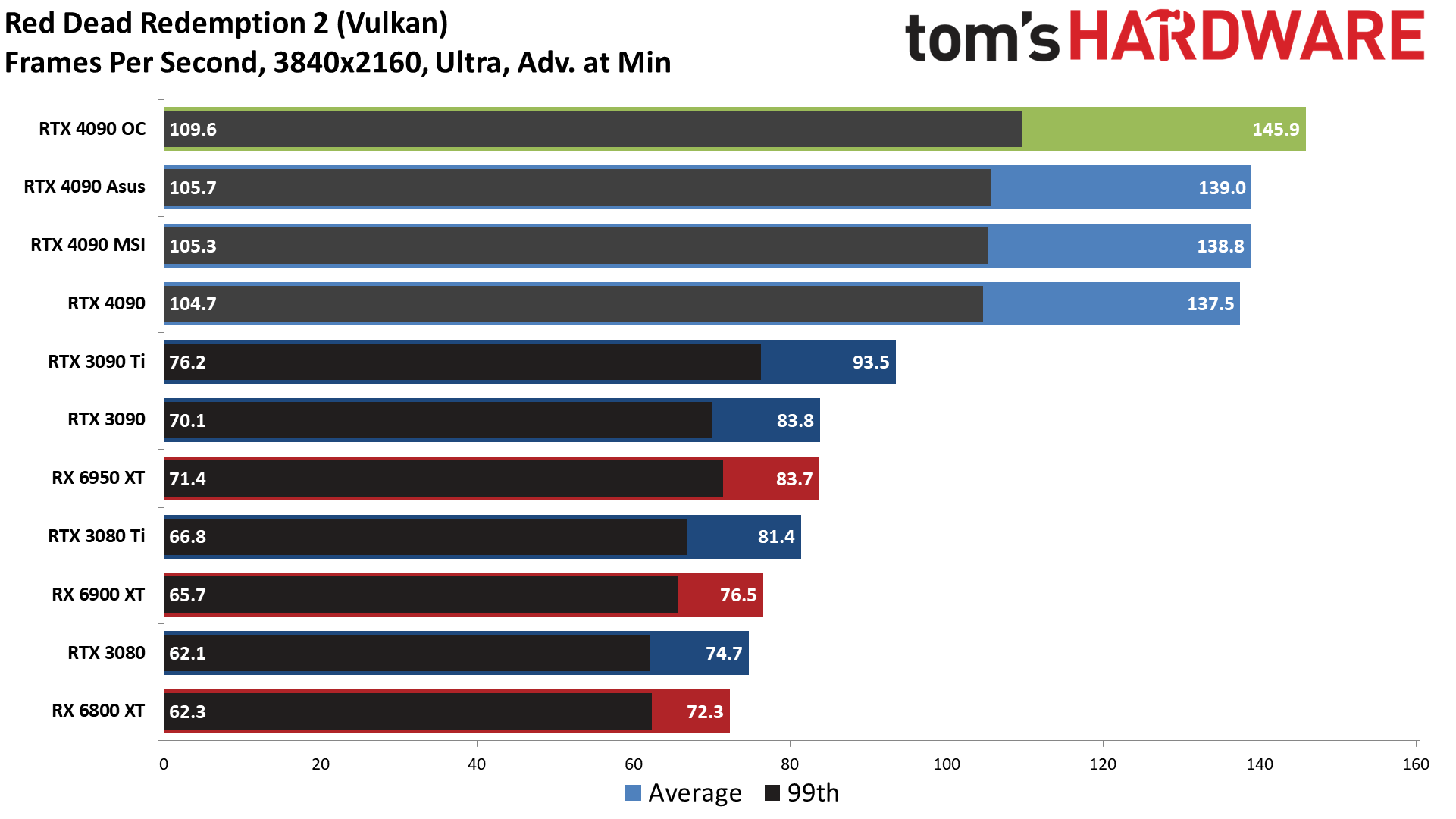
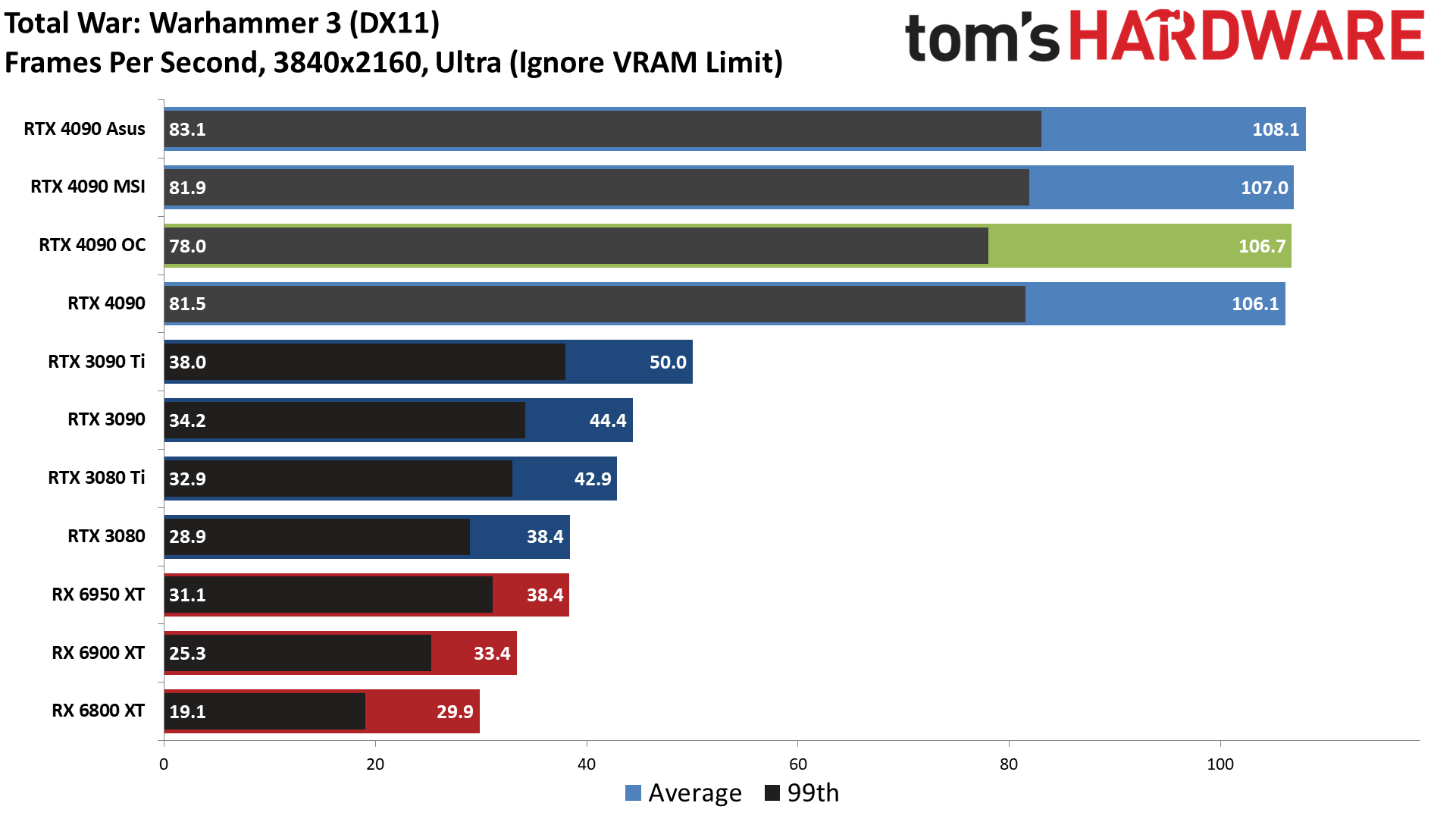
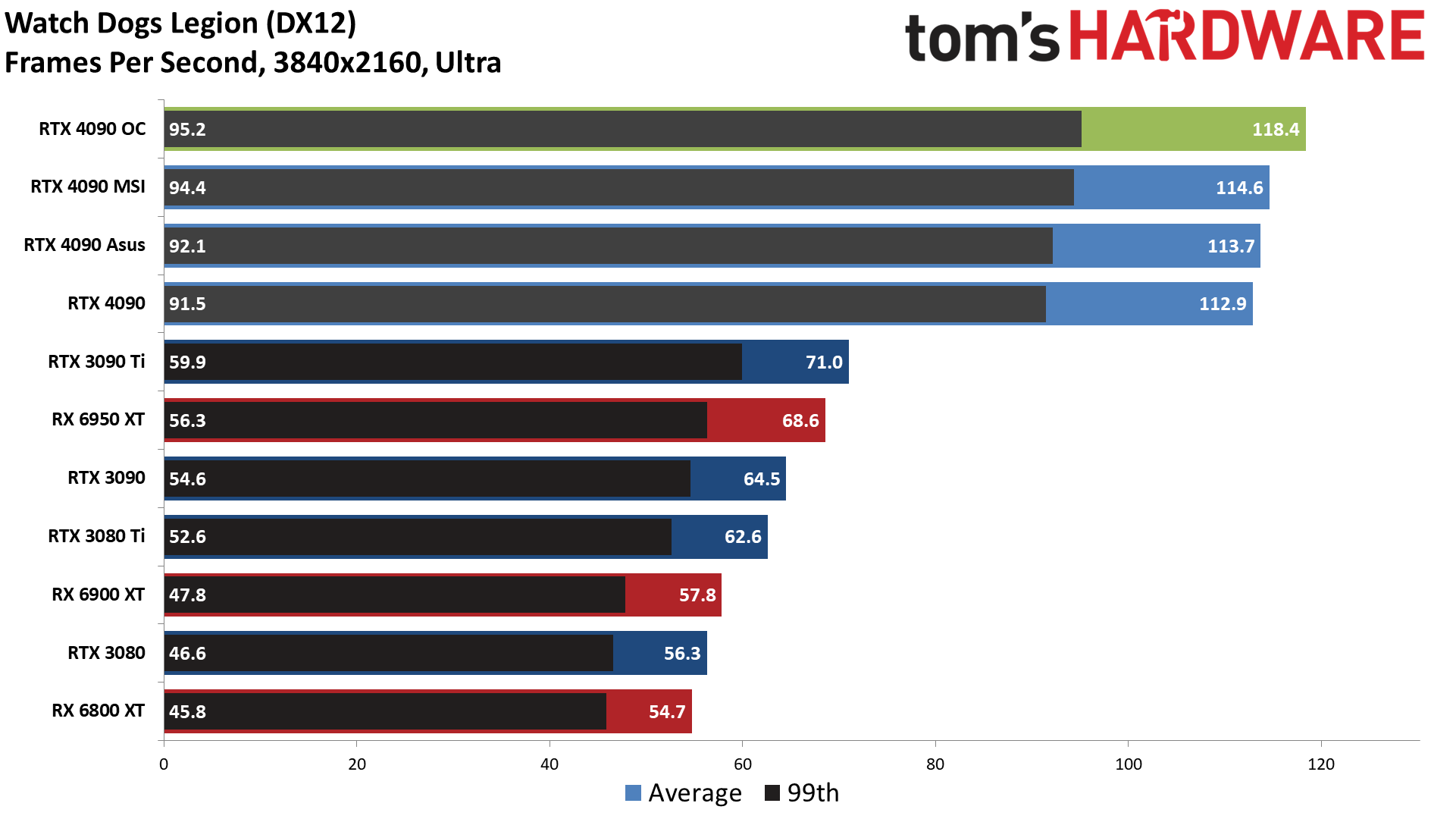
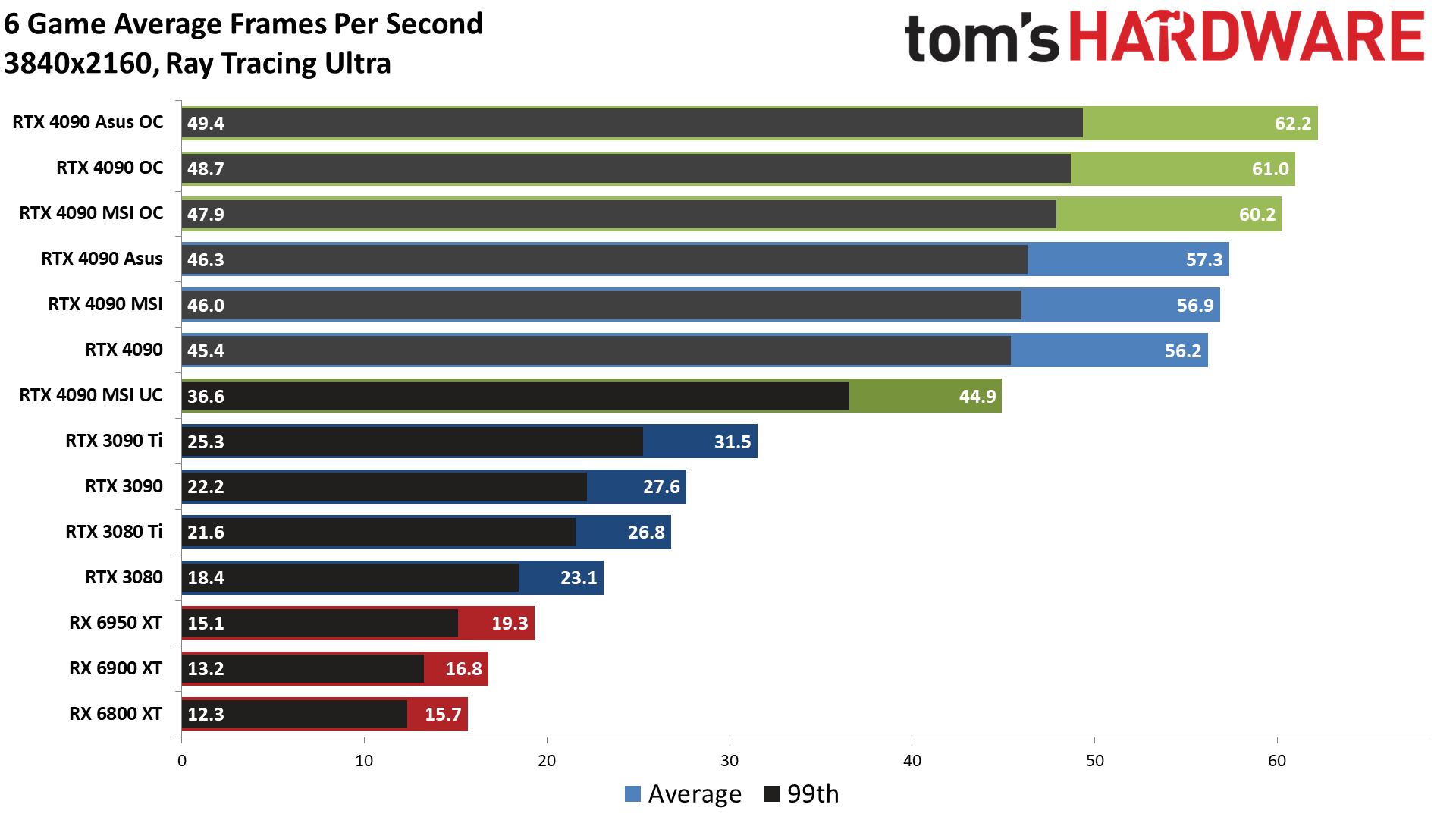
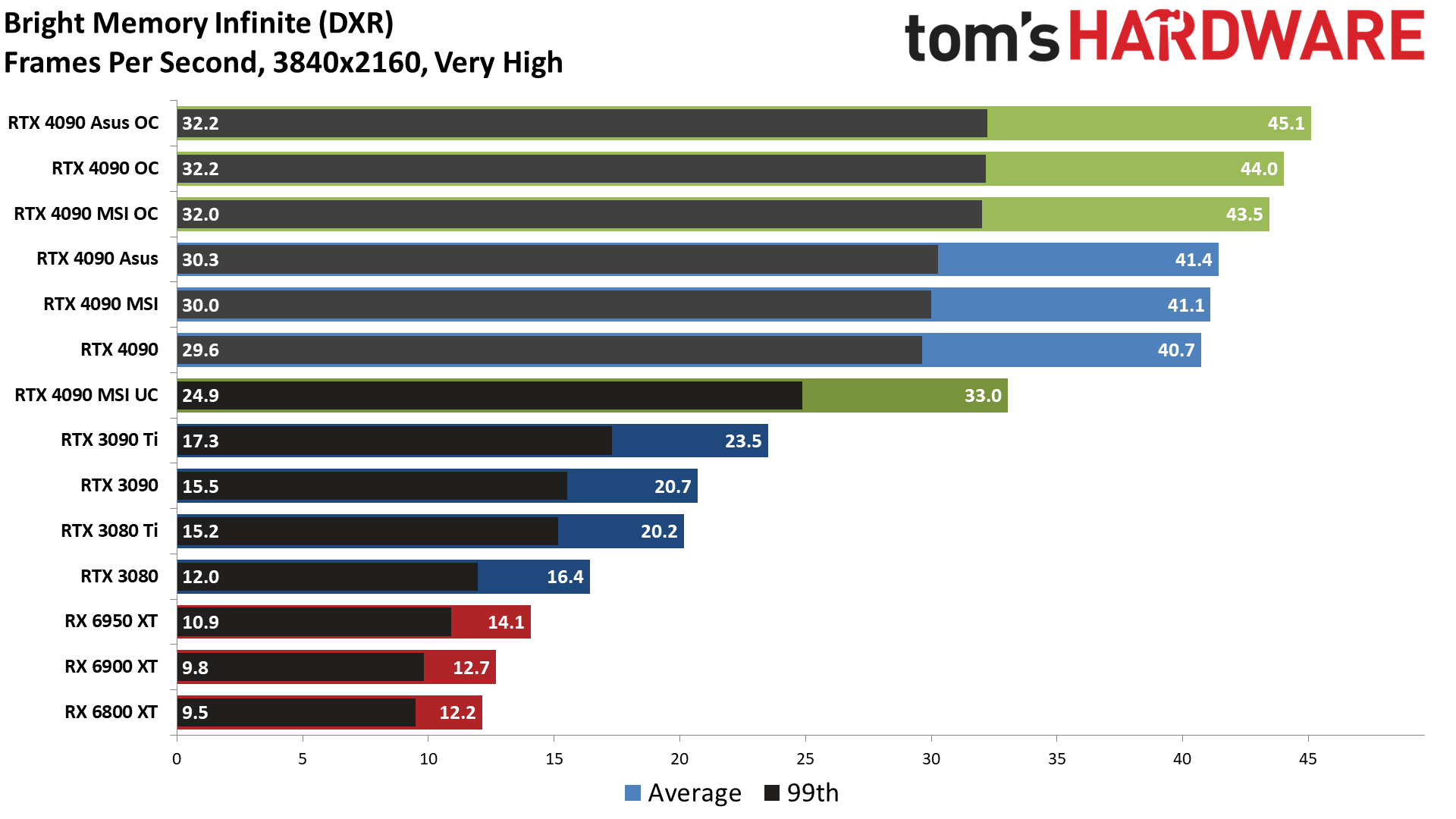
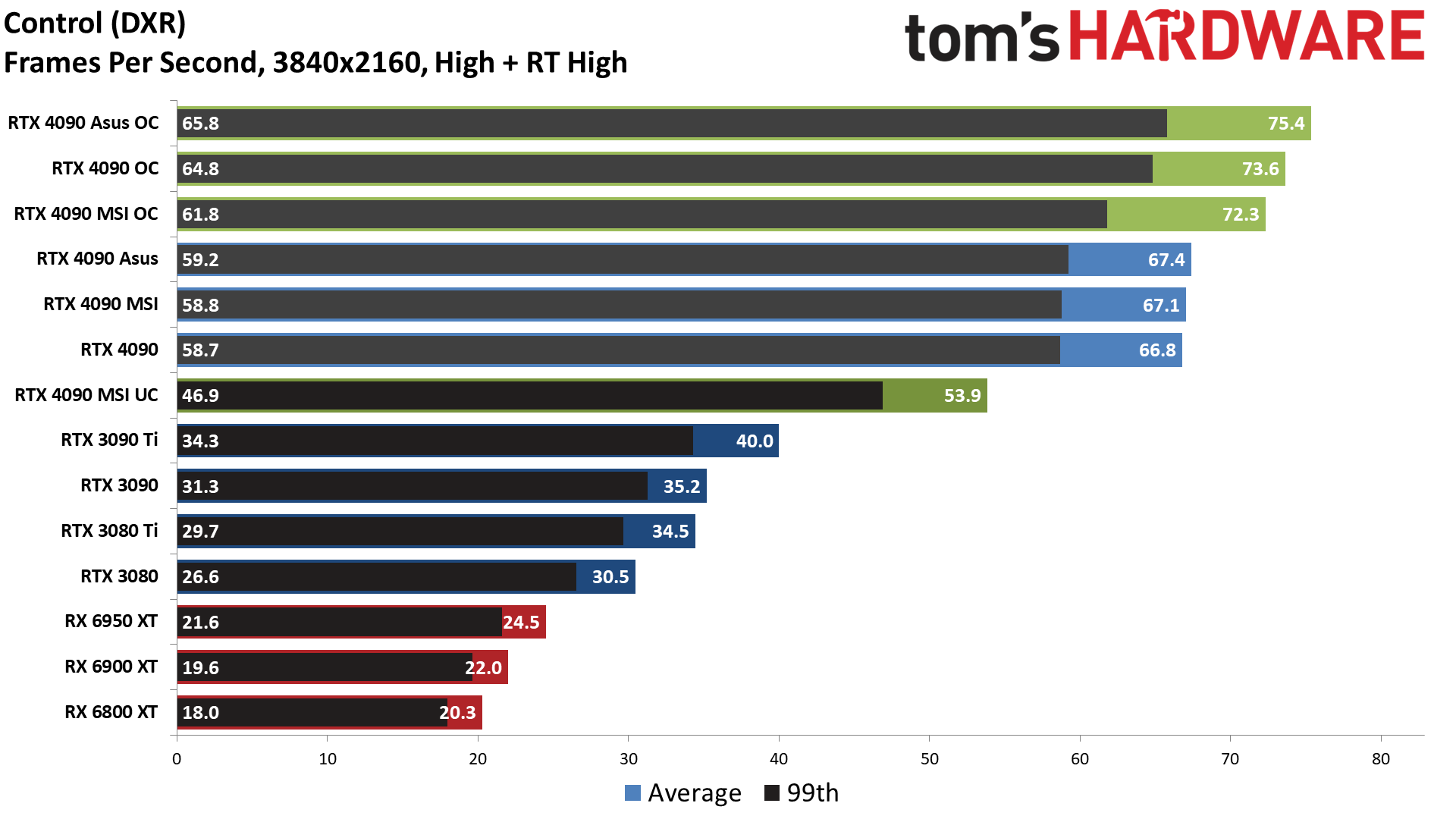
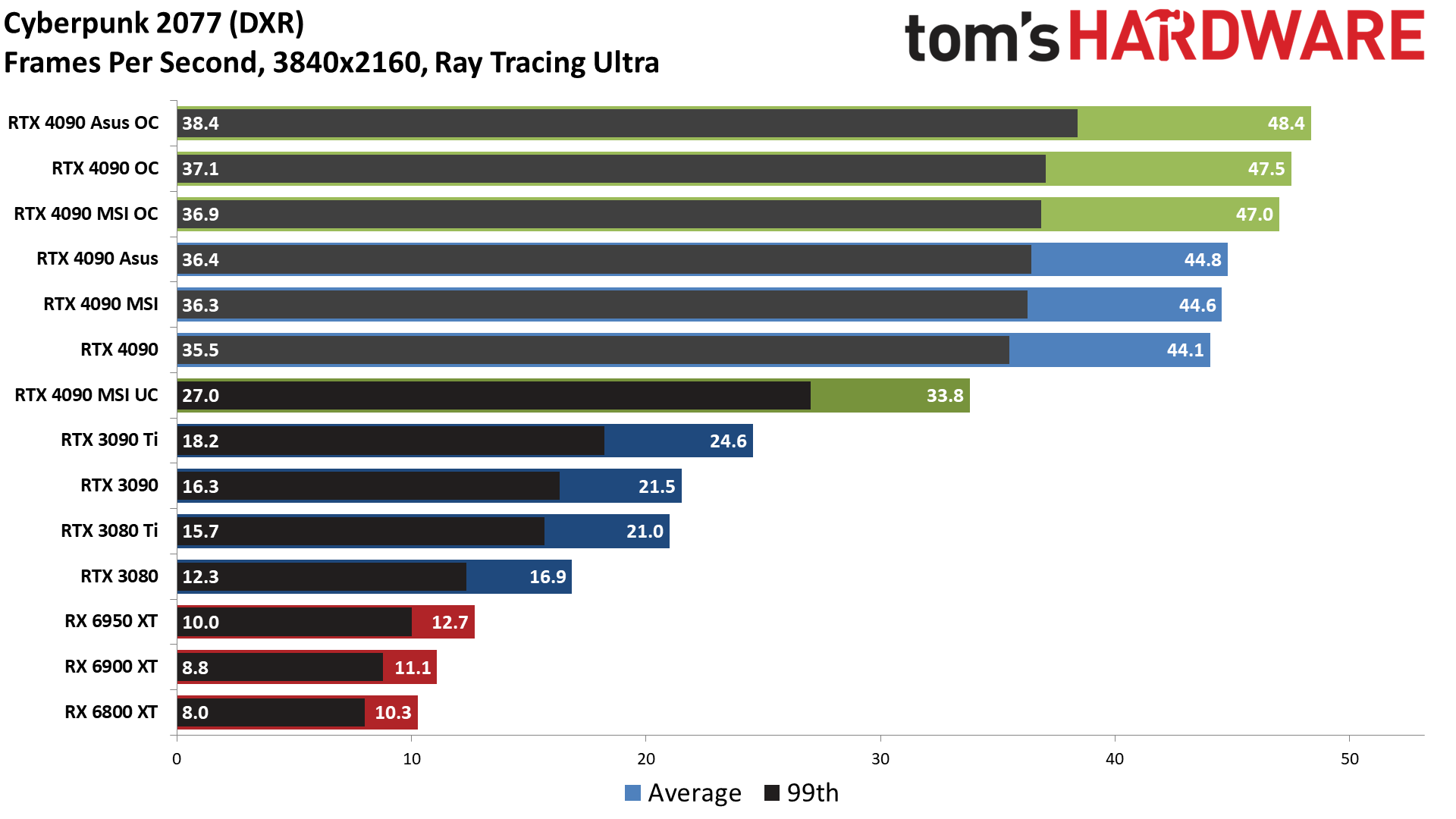
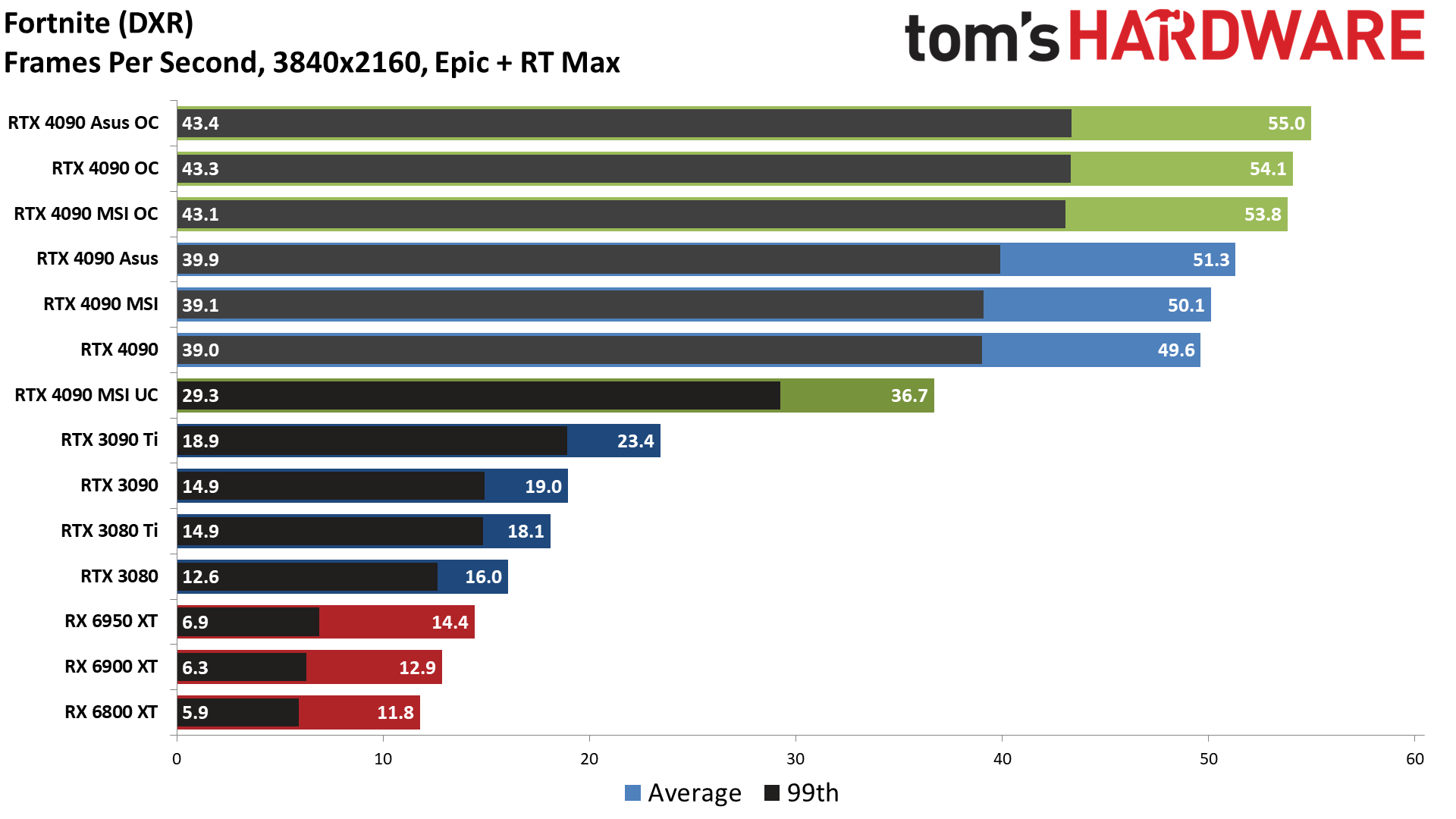
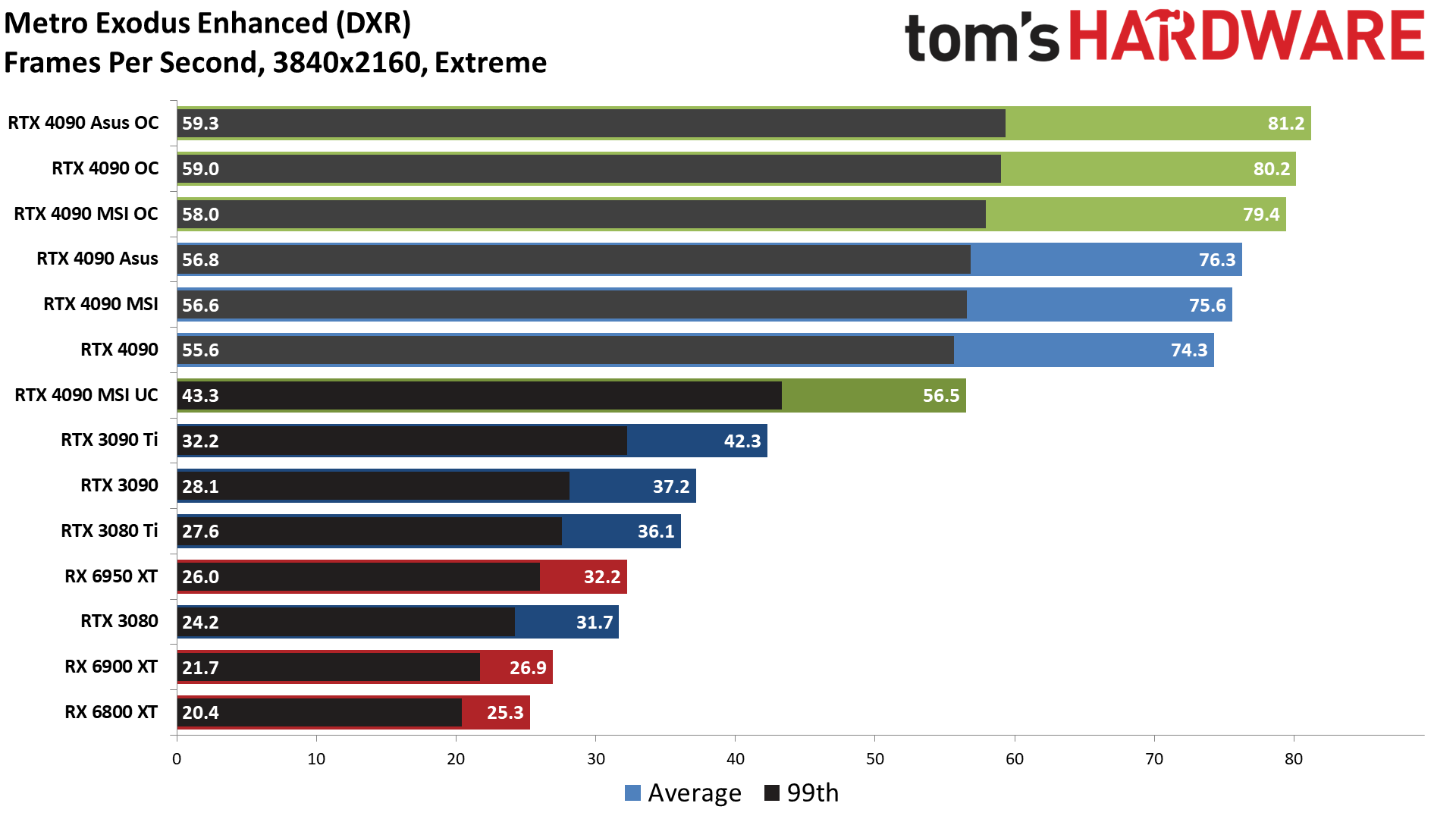
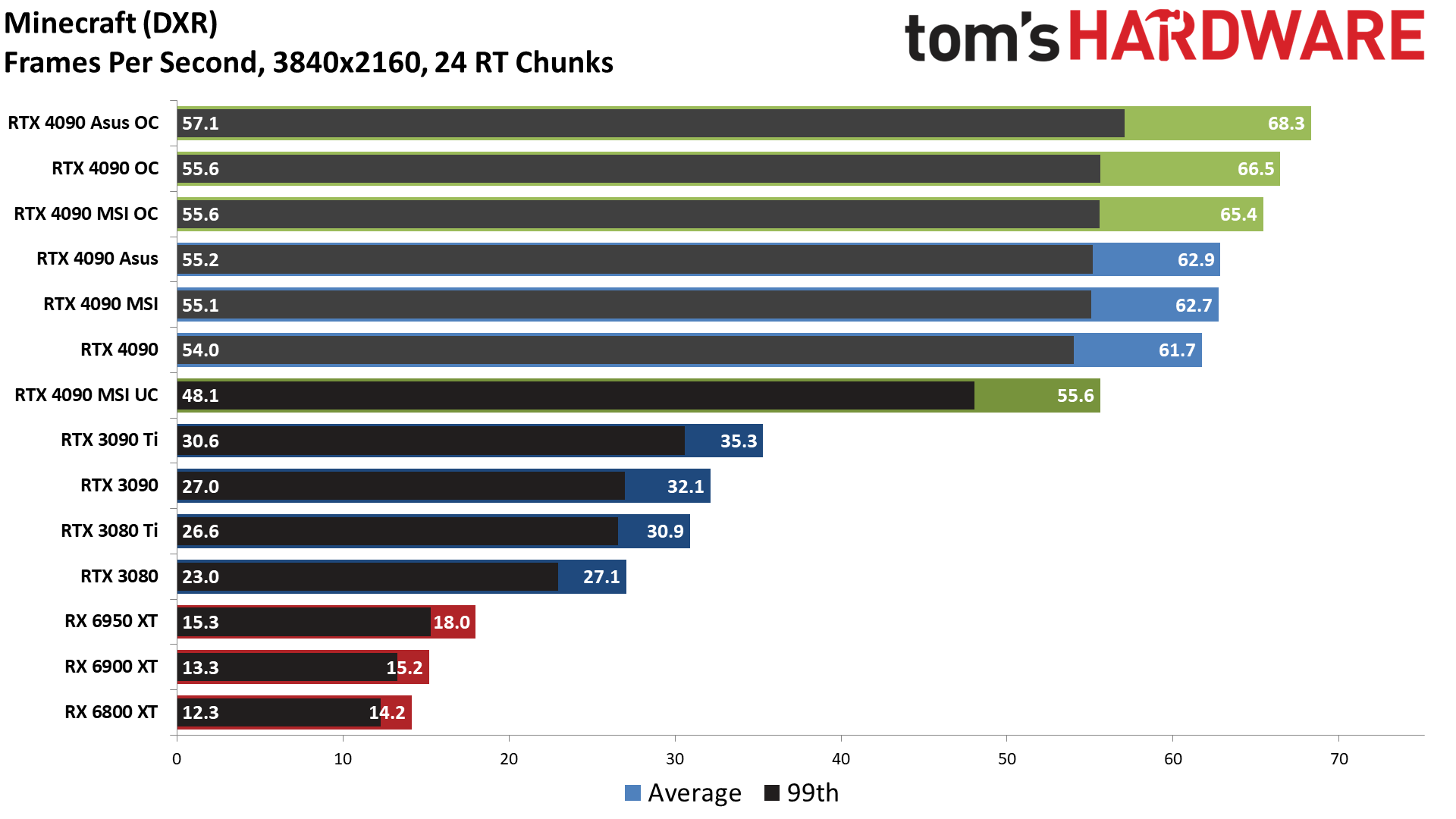
We have both stock and overclocked results for the ray traced games, while we limited overclocked testing in our standard test suite to the Founders Edition. That's because even at 4K, we start to see other factors limit performance. Across our standard test suite, the overclock on the Founders Edition only improves performance by 4% on average. In our ray tracing suite, the same settings yield an 8.5% improvement.
The Asus 4090 ROG Strix card ends up as the fastest of the options we've tested, but not by much. At stock, it's 1.2% faster than the Founders Edition and a scant 0.6% faster than the MSI card in our standard test suite. The gap's slightly larger in the DXR suite: 2% faster than Nvidia's reference model and 0.9% faster than the MSI card.
To put it bluntly, no one will actually notice less than a 2% gain in performance, and probably not even a 10% gain without running benchmarks. Speaking of which, the relatively large overclock on the Asus ROG Strix adds another 8.5% to its 4K DXR result, which makes it 10.7% faster than the stock Founders Edition card. But if we go with overclocked results on all the 4090 cards, we're back to a 2% improvement over the Founders Edition, and a 3.3% improvement over the MSI card — yes, the Nvidia model performed better than the MSI model with overclocking, though that could easily be luck of the draw.
The individual results tell a similar story. Less demanding games like Metro Exodus Enhanced show smaller gains from overclocking, while Control shows the biggest improvement overall at 11.8% (compared to factory stock).
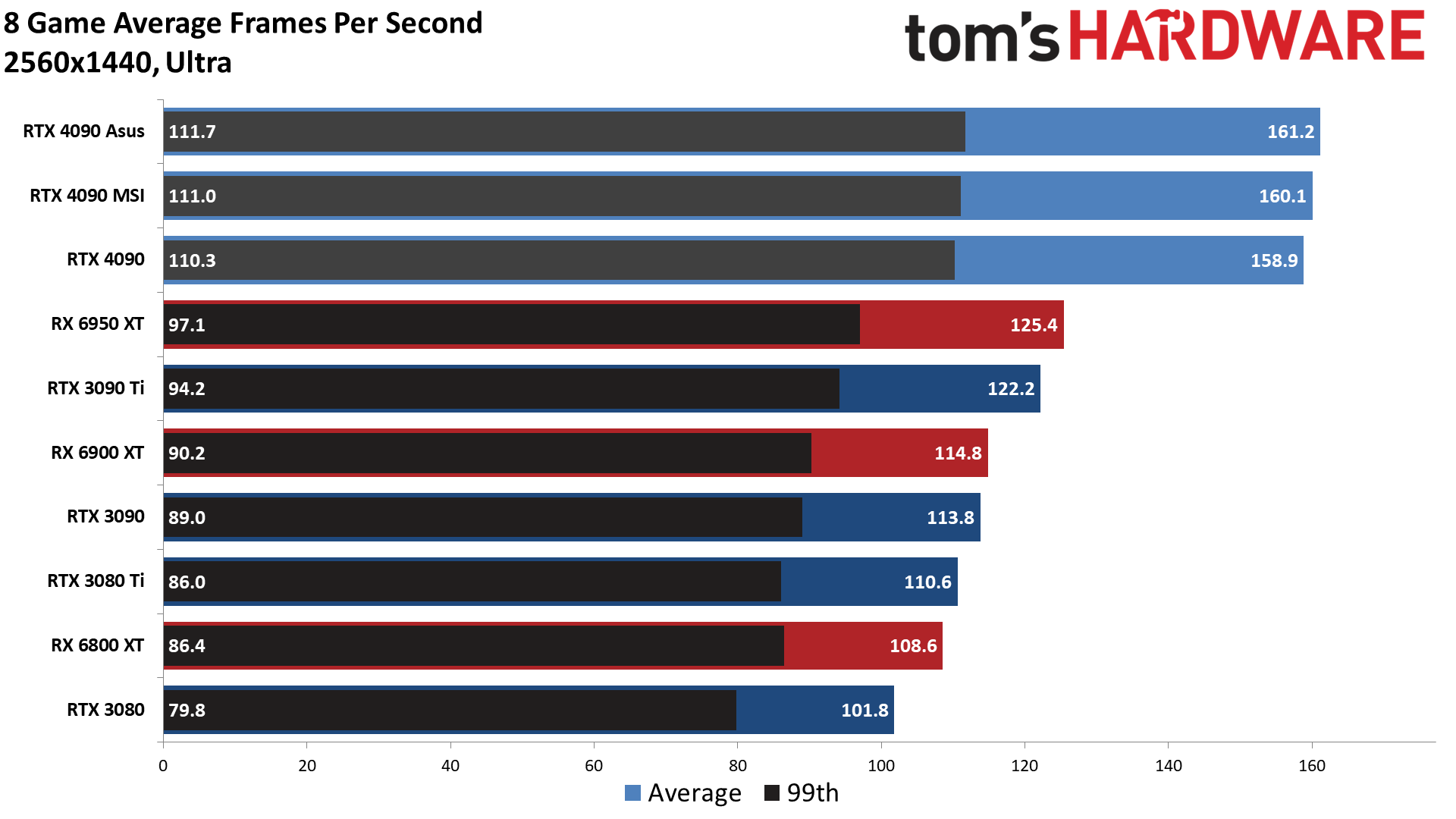
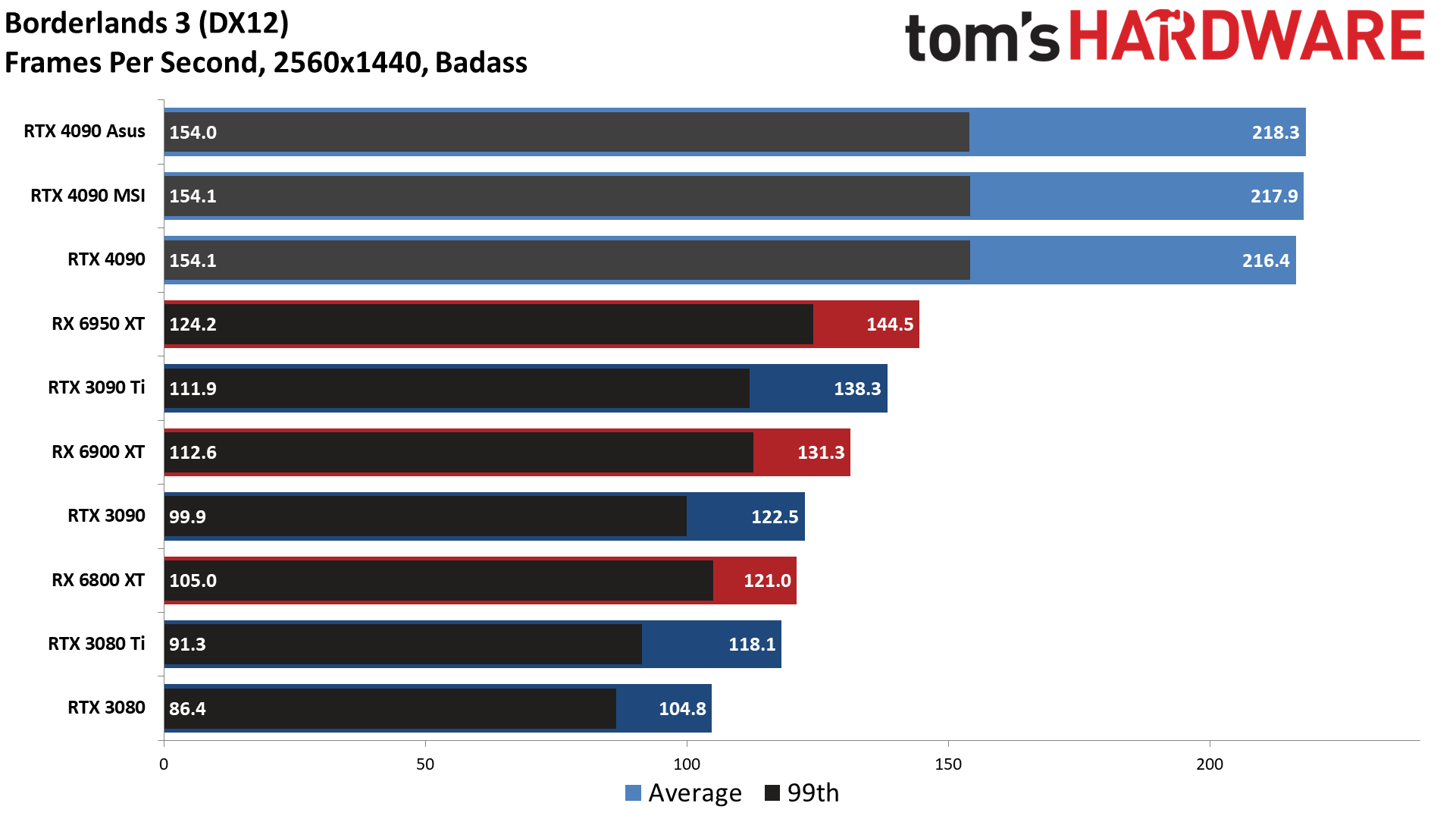
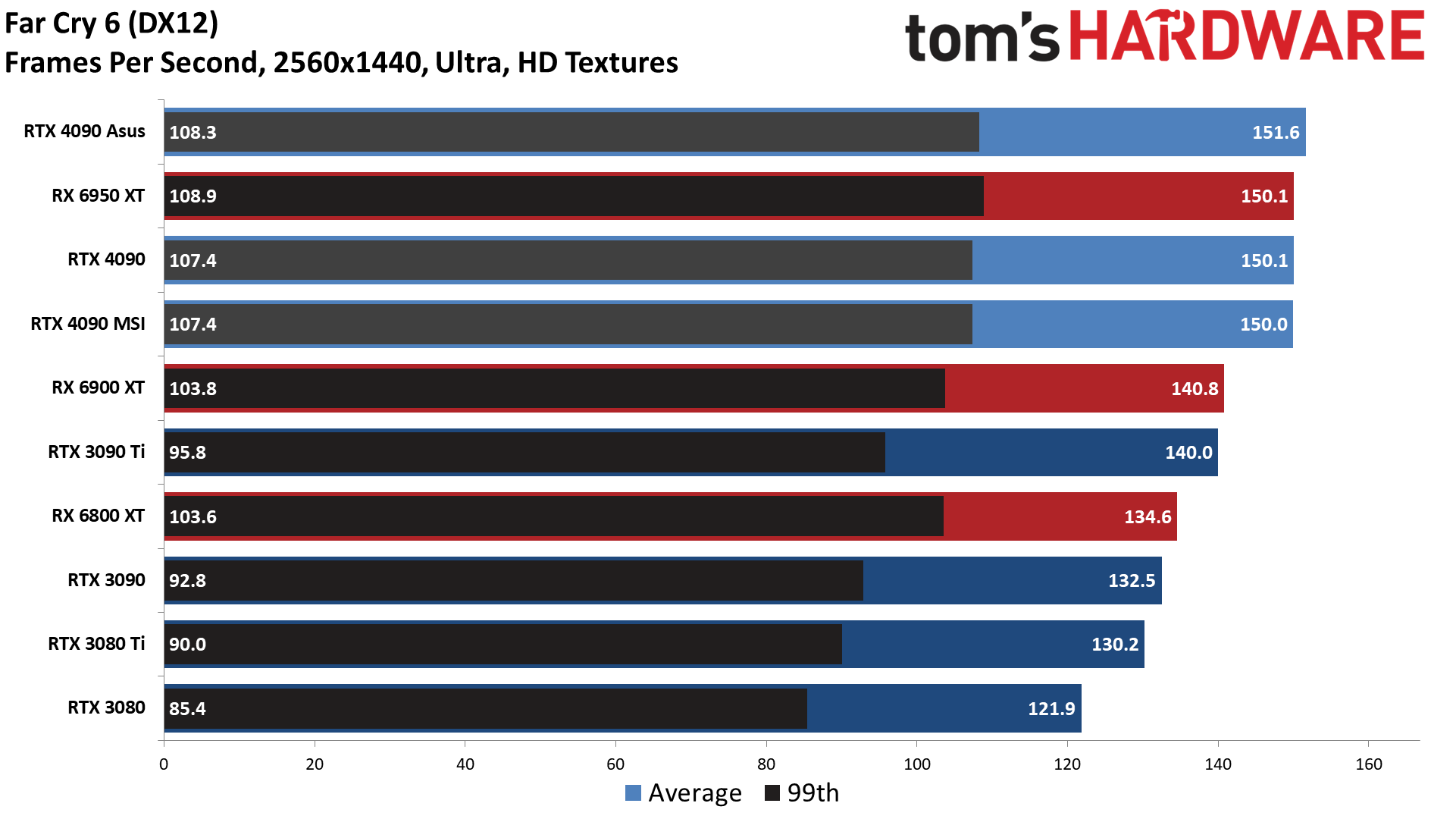
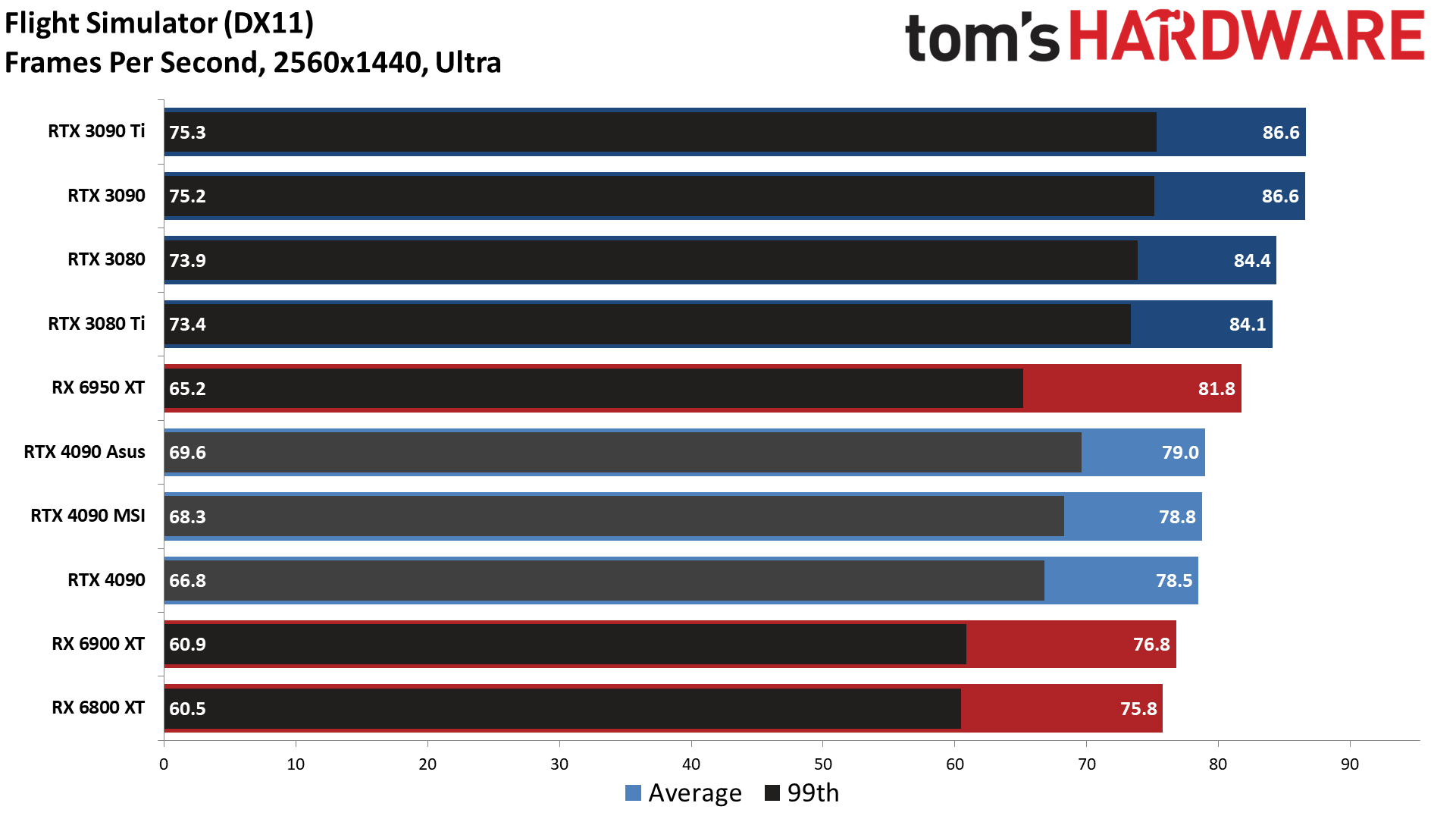
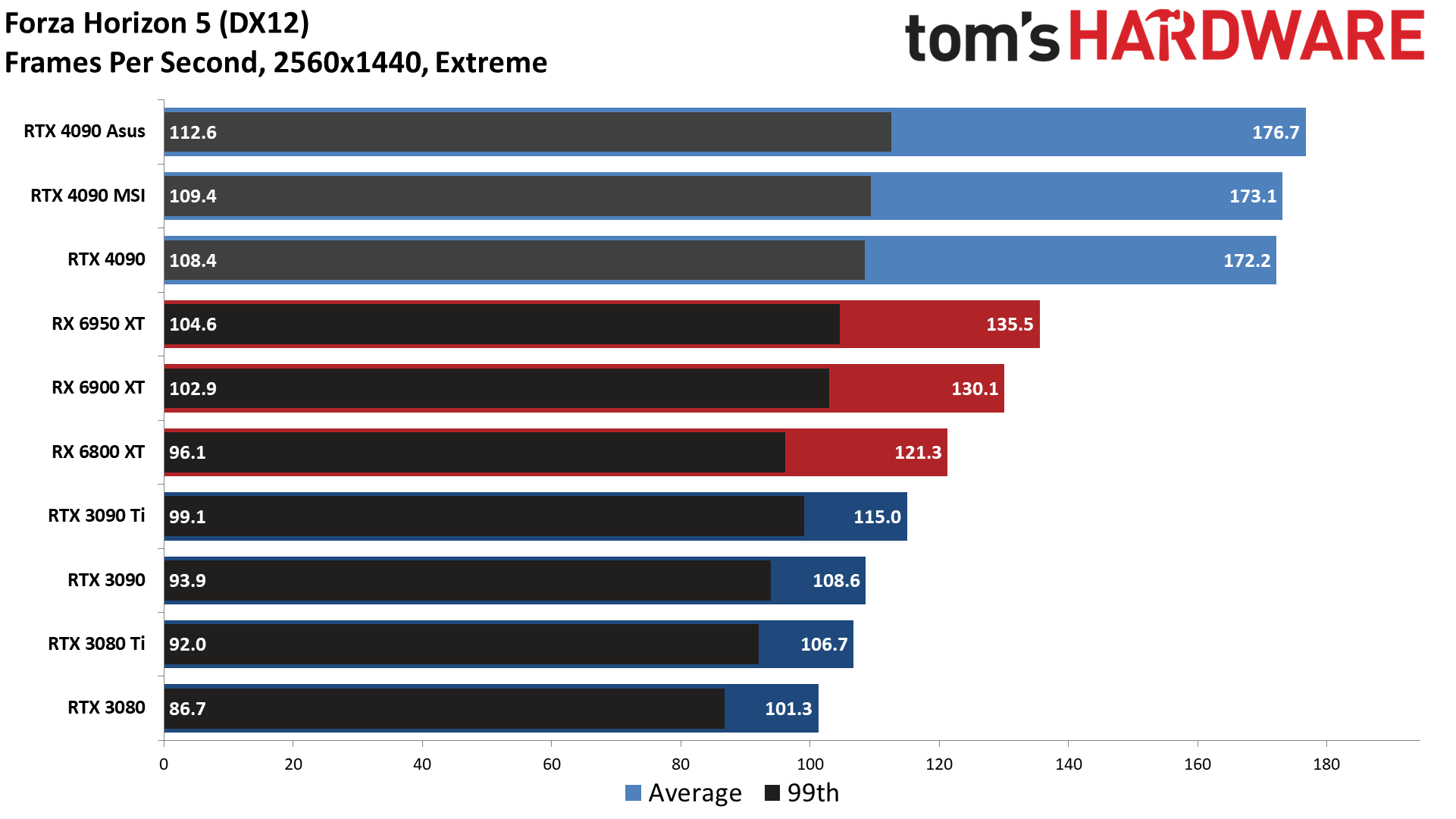
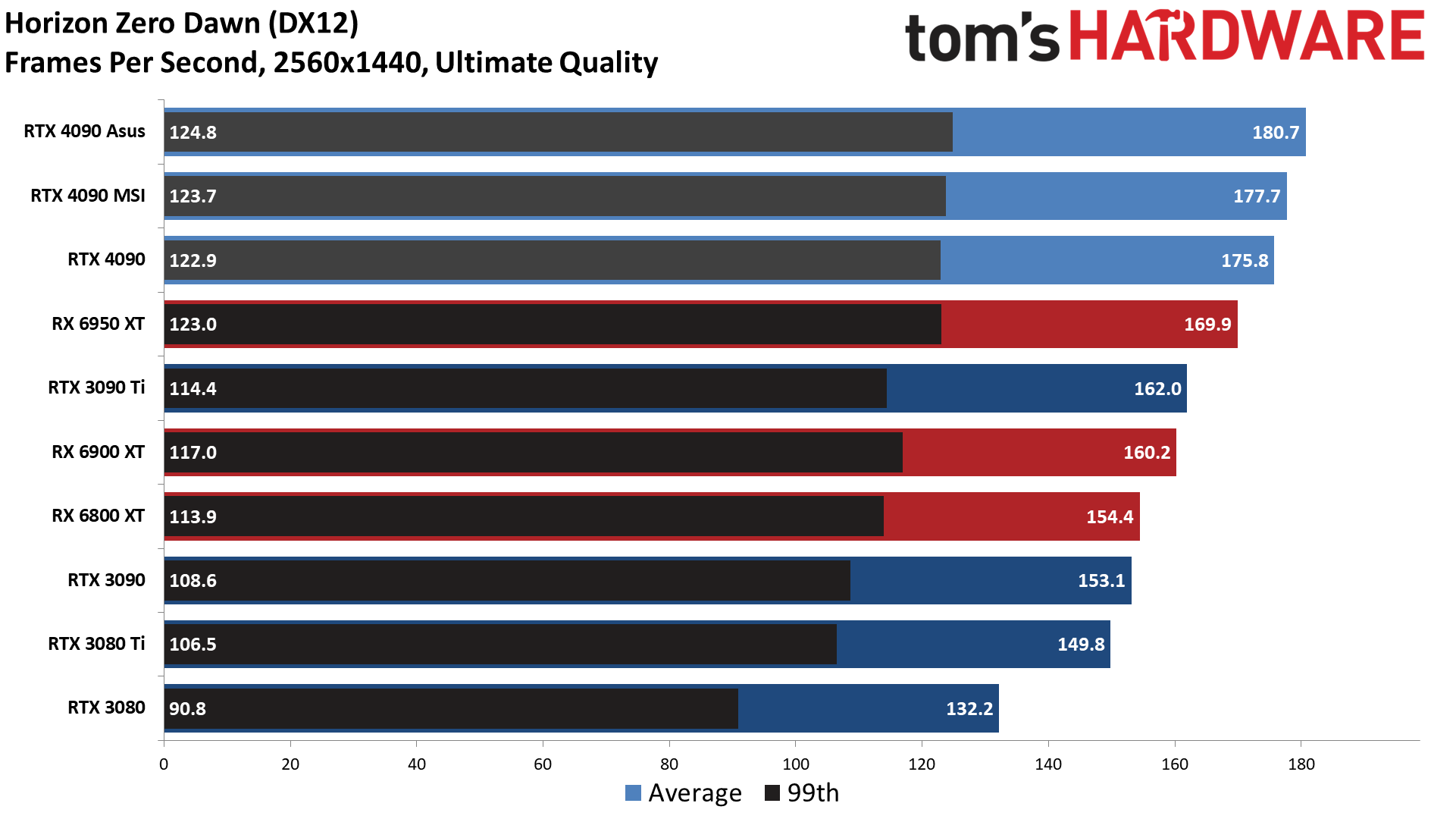
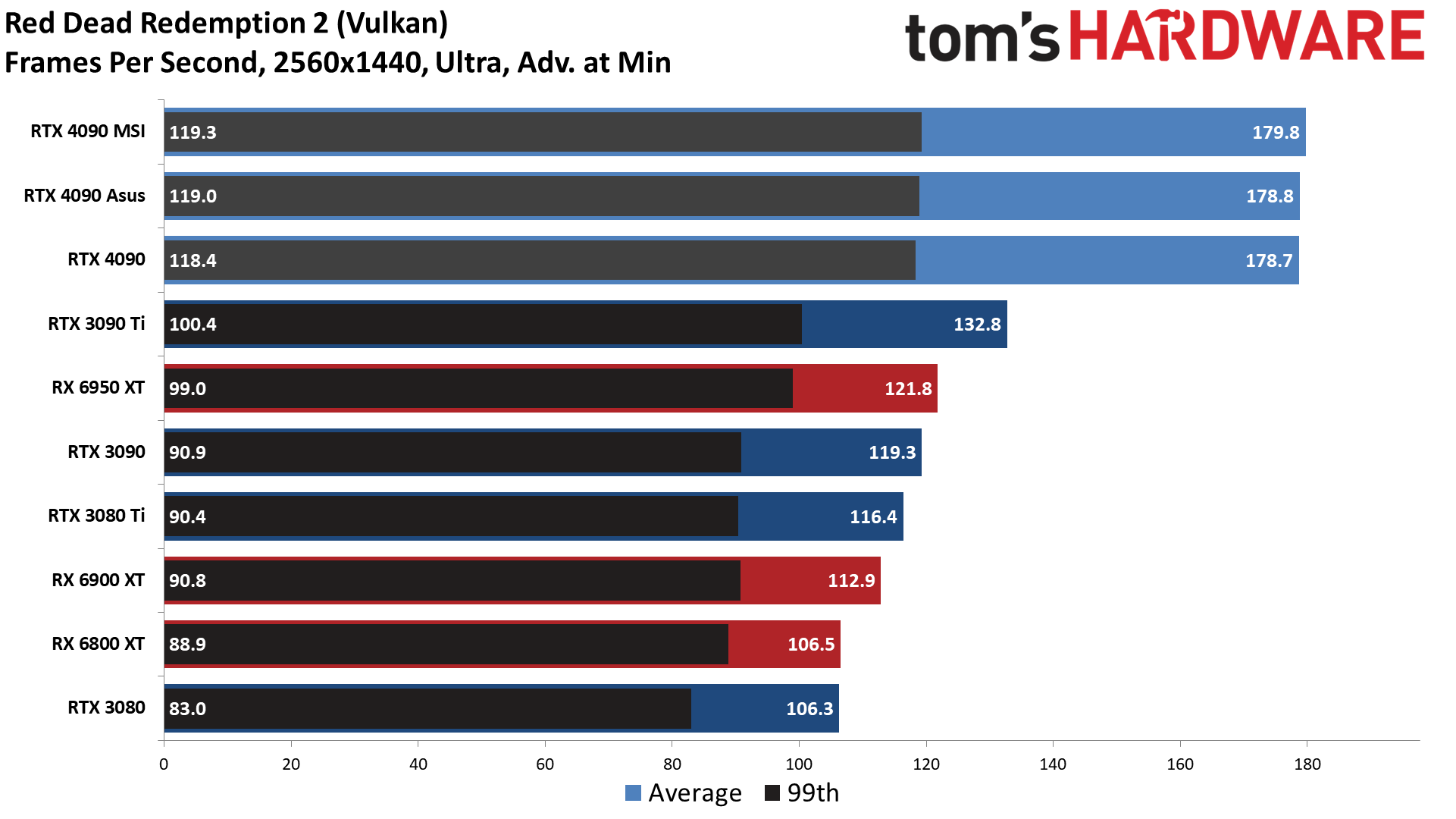
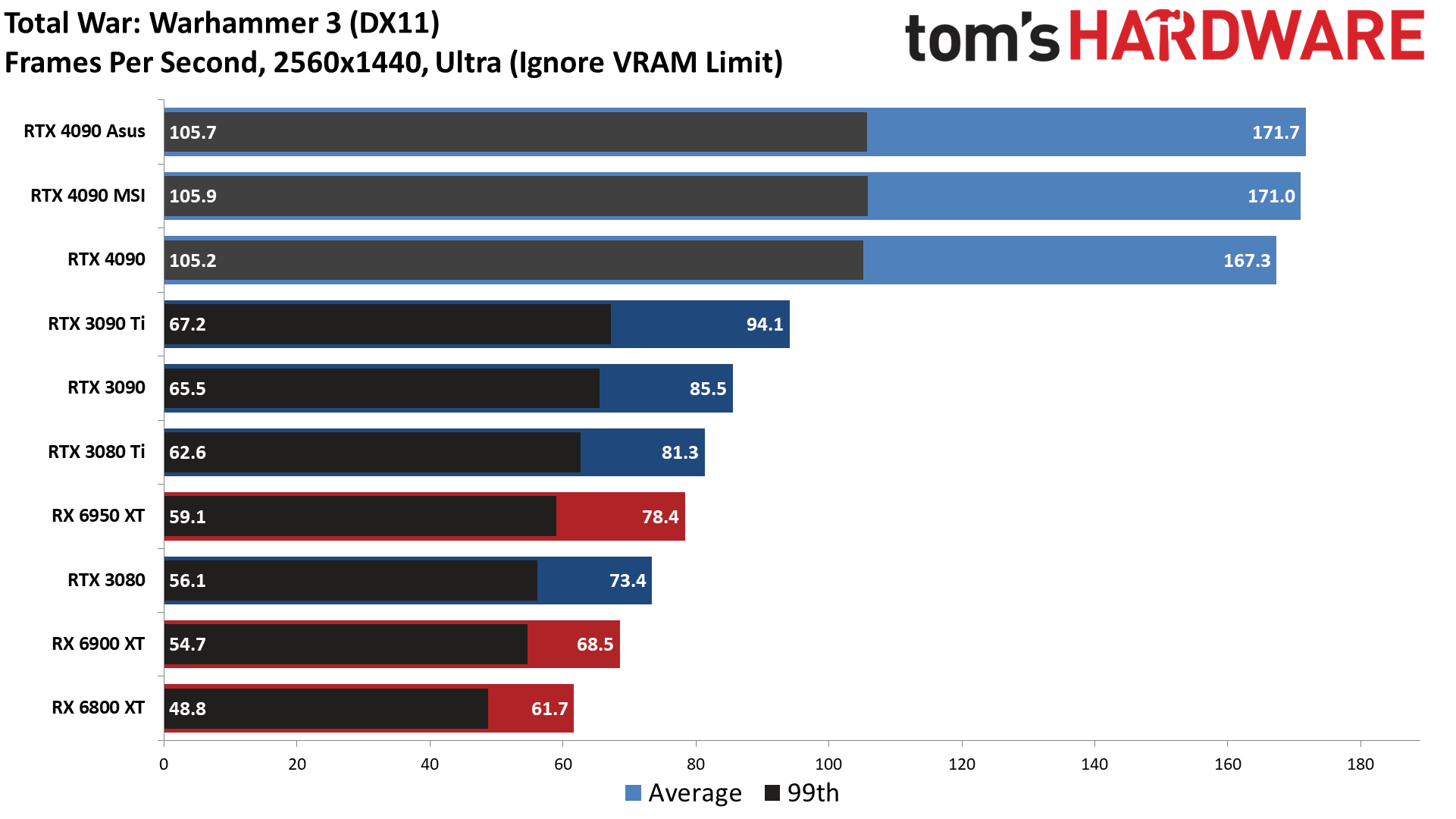
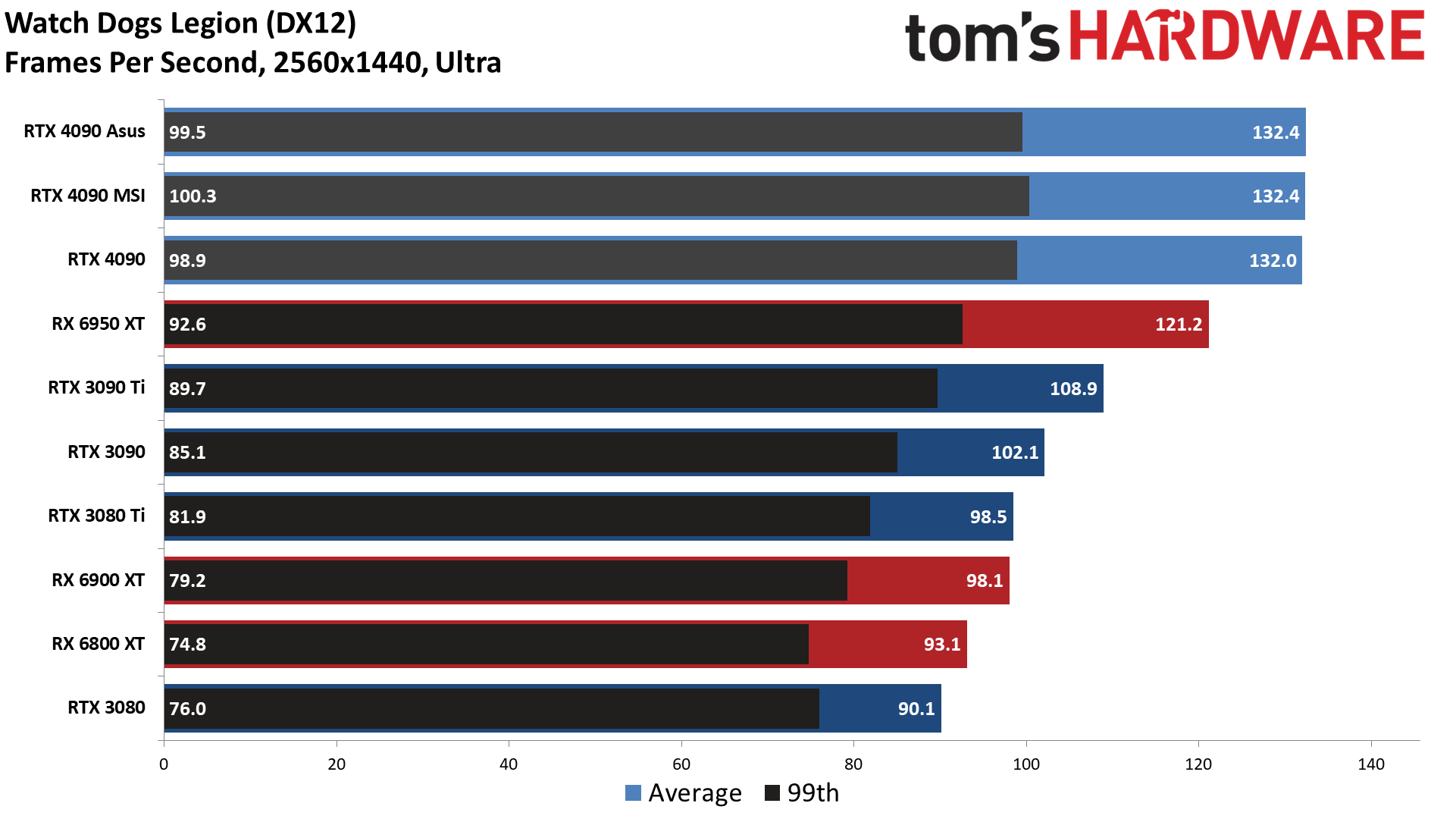
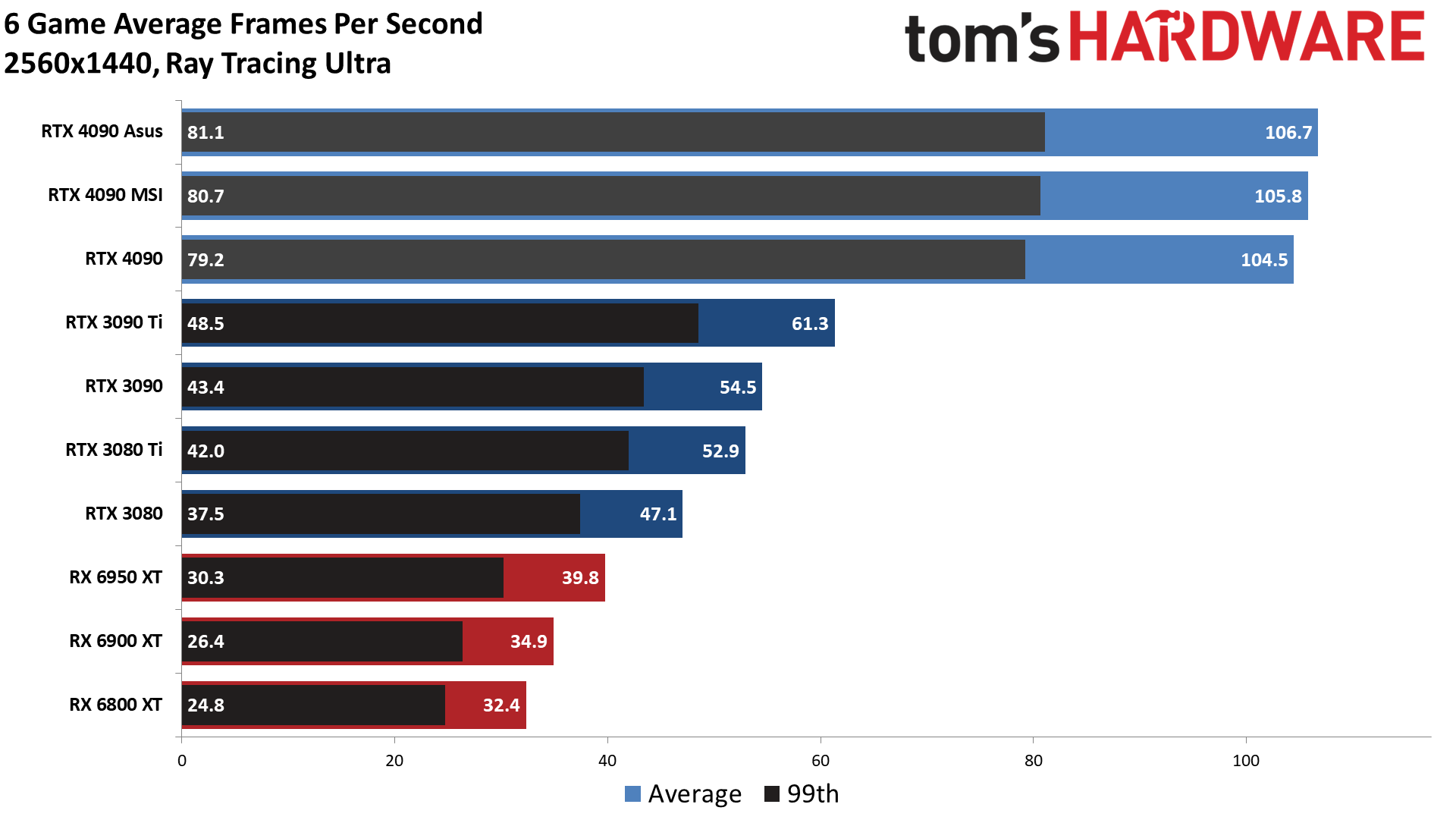
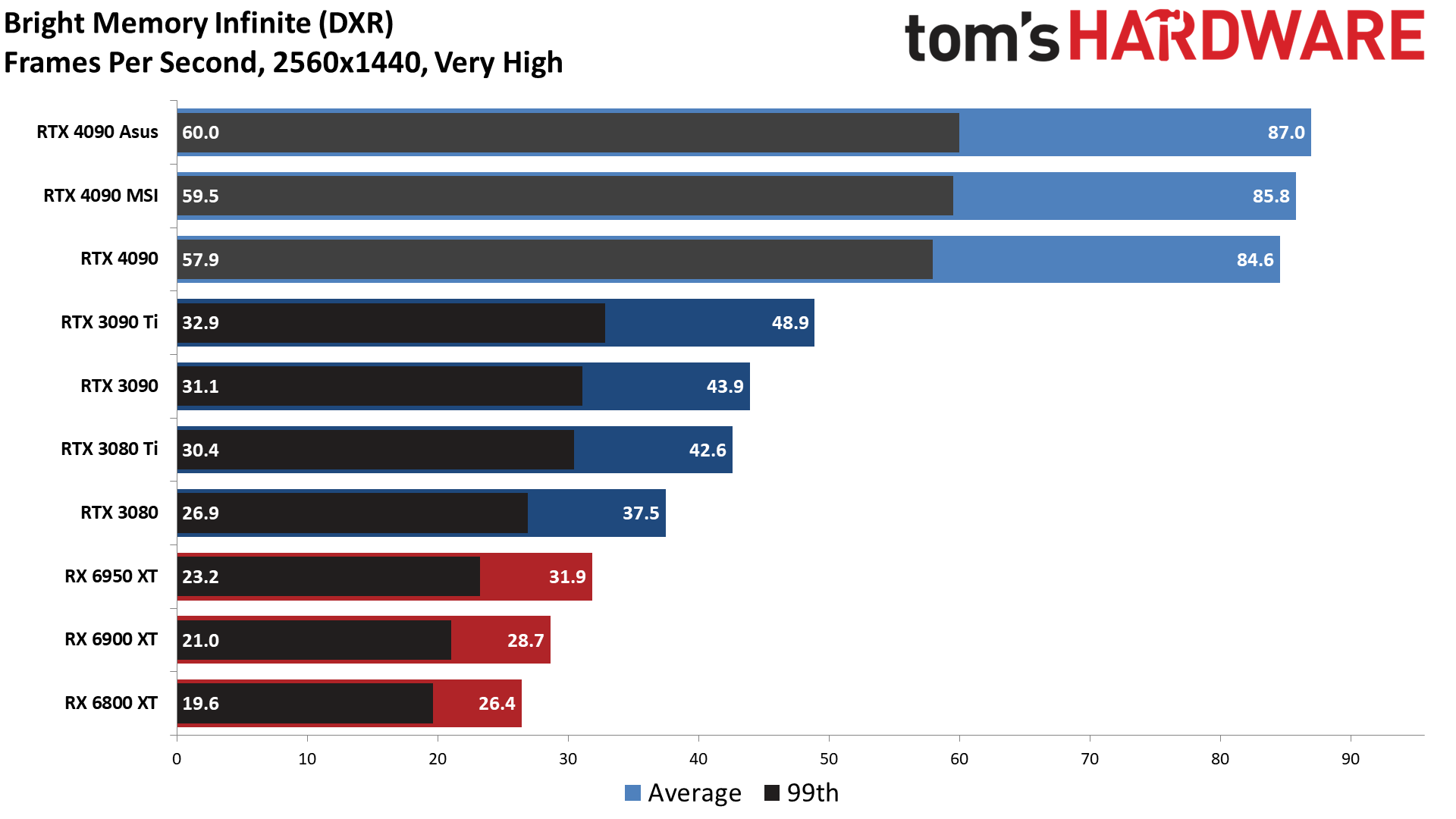
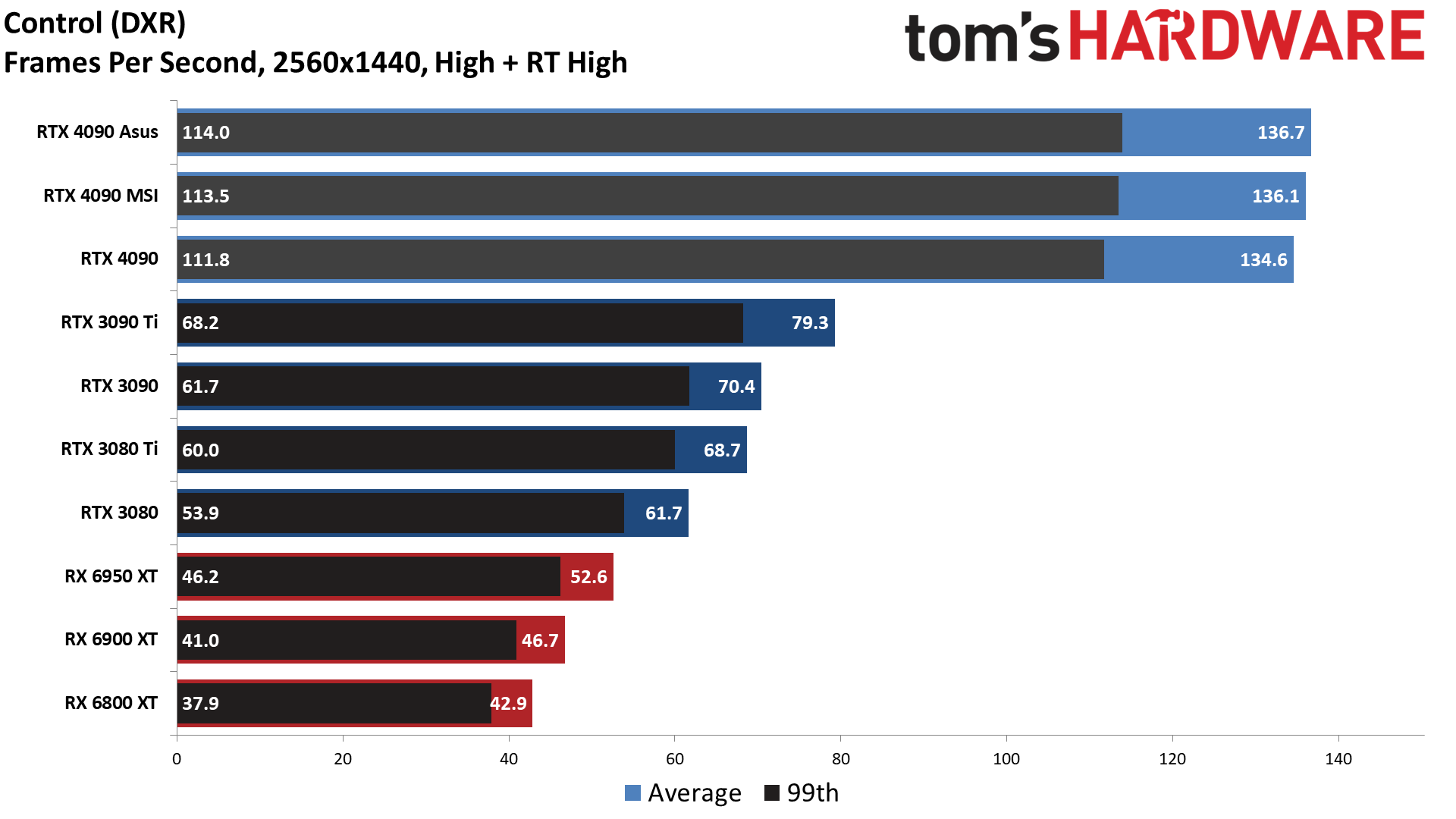
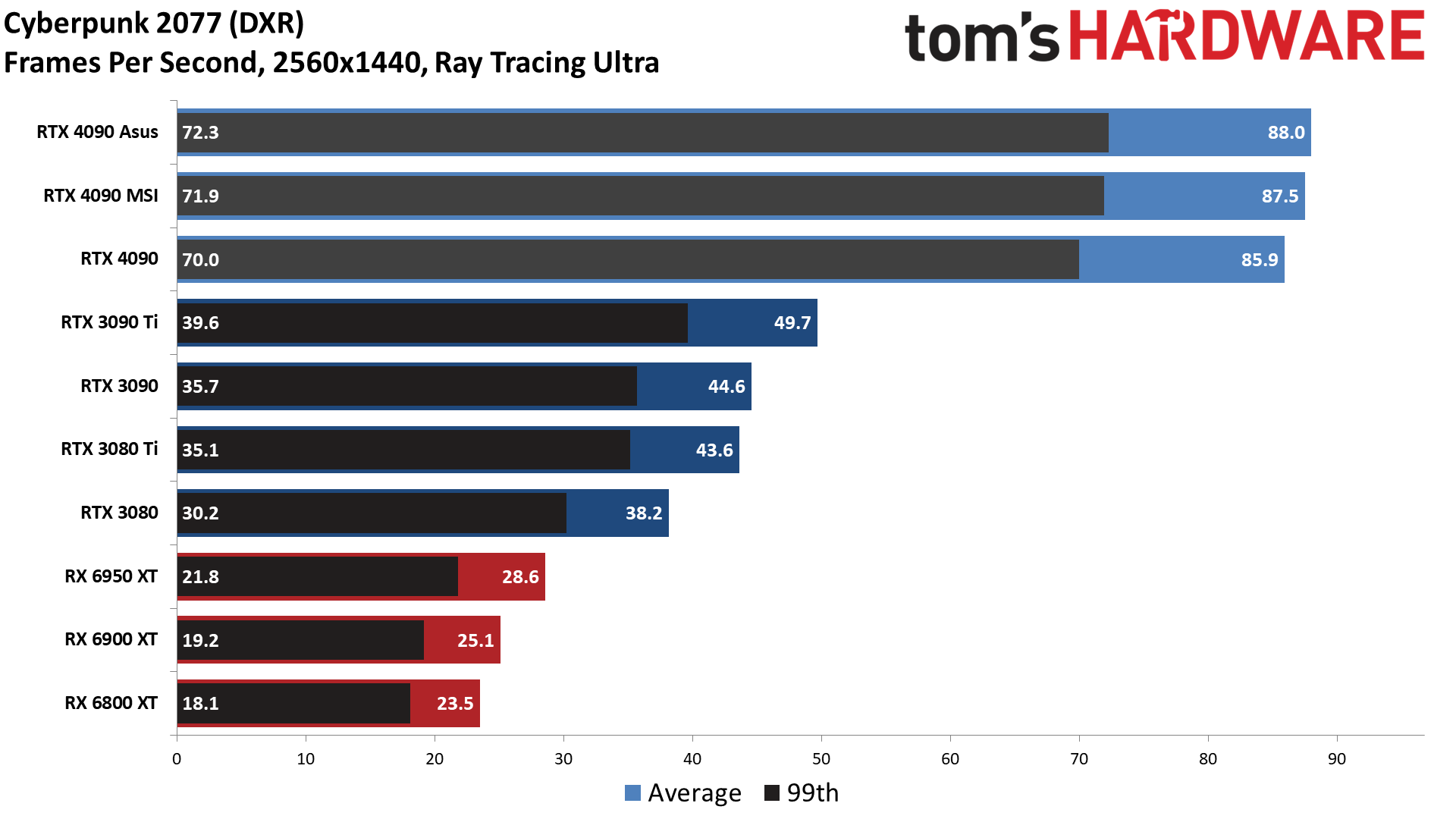
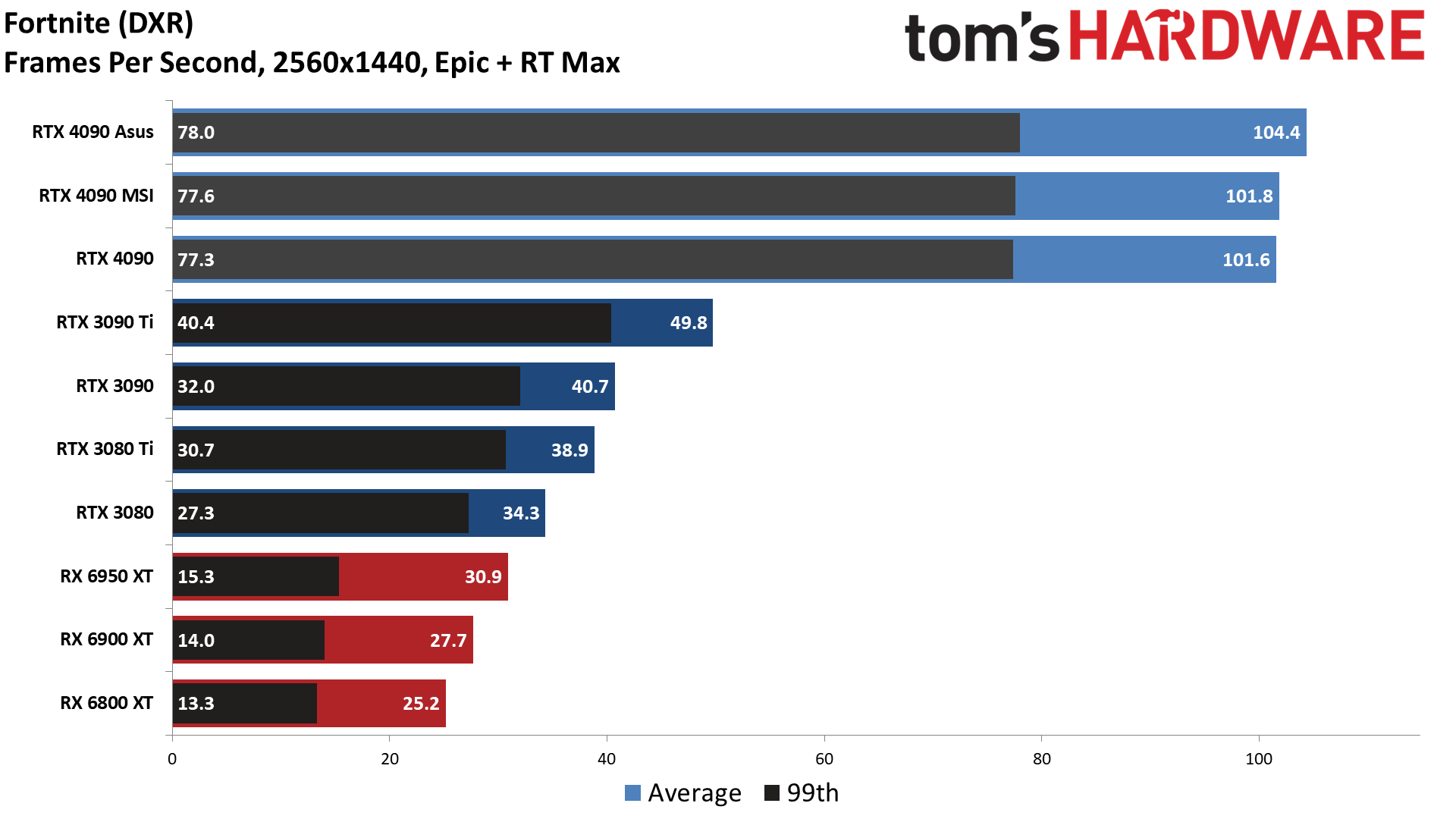
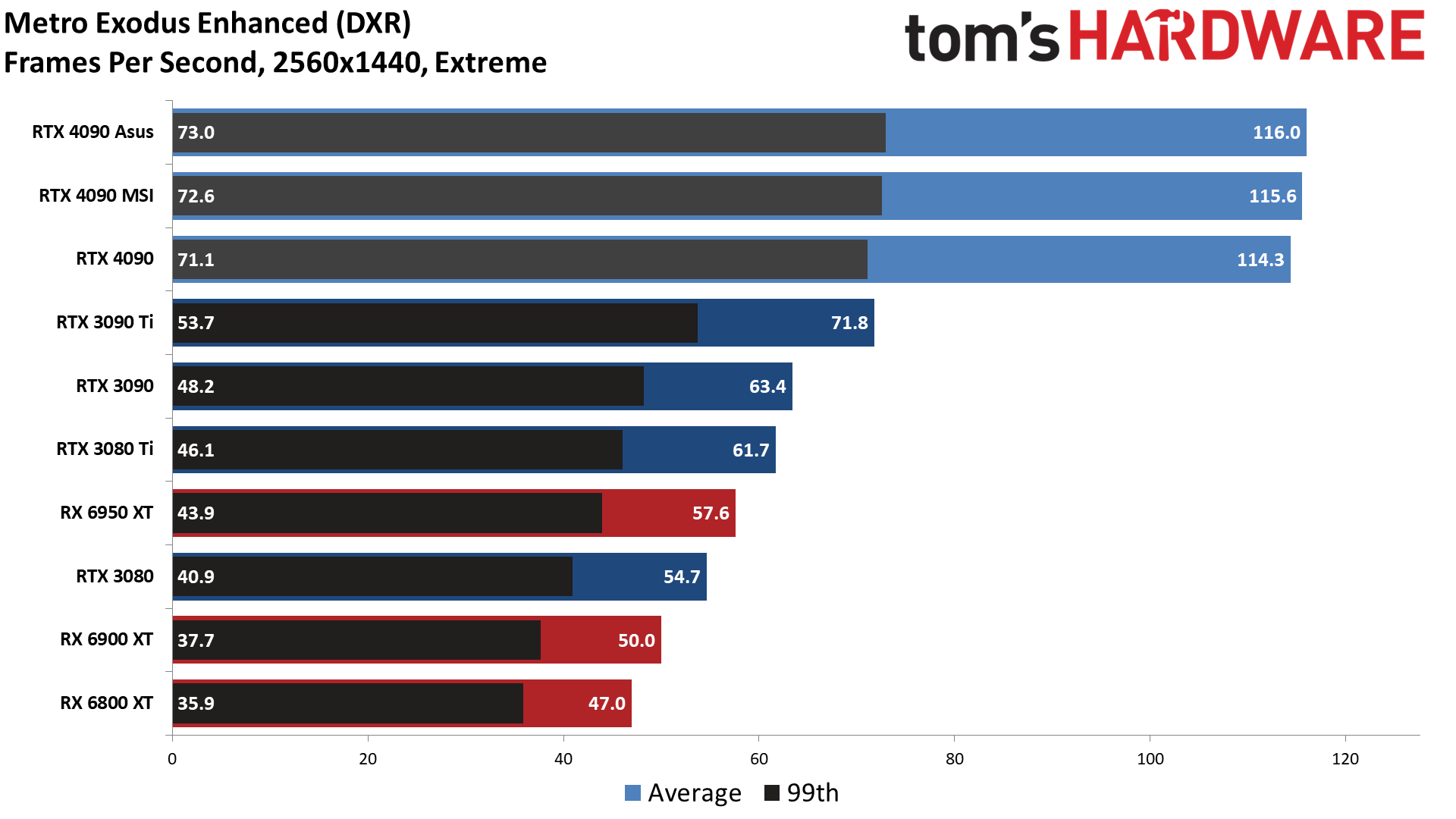
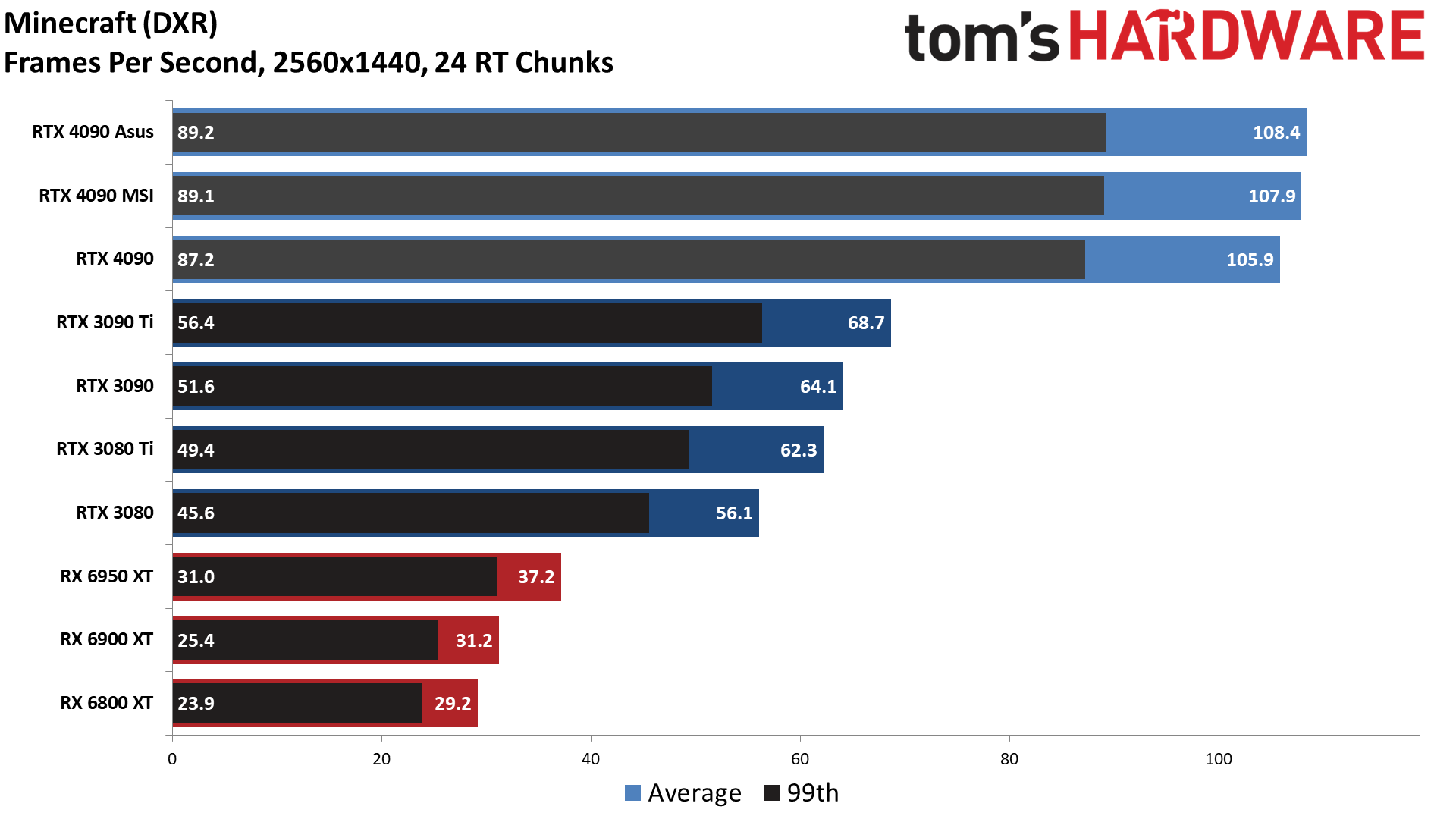
We've only tested stock performance at 1440p, and the results are generally the same as at 4K. The Asus ROG Strix takes the top spot, offering about 1% higher performance than the Founders Edition and MSI cards. The gap is slightly larger with ray tracing, at least compared to the FE model, where Asus comes out 2% ahead. But we're largely splitting hairs and if you're after pure performance, any of the 4090 cards should more than suffice.
- MORE: Best Graphics Cards
- MORE: GPU Benchmarks and Hierarchy
- MORE: All Graphics Content
Get Tom's Hardware's best news and in-depth reviews, straight to your inbox.
Current page: Asus RTX 4090 ROG Strix: 4K and 1440p Gaming Performance
Prev Page Test Setup for Asus RTX 4090 ROG Strix OC Next Page Asus RTX 4090 ROG Strix: Power, Temps, Noise, Etc.
Jarred Walton is a senior editor at Tom's Hardware focusing on everything GPU. He has been working as a tech journalist since 2004, writing for AnandTech, Maximum PC, and PC Gamer. From the first S3 Virge '3D decelerators' to today's GPUs, Jarred keeps up with all the latest graphics trends and is the one to ask about game performance.
-
-Fran- Thanks for the review, but I hate to say this: you missed the most important thing here...Reply
Can you do a proper workout with this card? How many calories do you burn by just unboxing it and then installing it in a case (when it fits)? Can you hold two at the same time without breaking your back?
Regards :LOL: -
JarredWaltonGPU Reply
I'll be following up with my new "90 Days to a Better You" fitness program.-Fran- said:Thanks for the review, but I hate to say this: you missed the most important thing here...
Can you do a proper workout with this card? How many calories do you burn by just unboxing it and then installing it in a case (when it fits)? Can you hold two at the same time without breaking your back?
Regards :LOL:
I may have already injured my wrist while trying to install the card, though... ;) -
-Fran- Reply
Hell yeah. Most expensive fitness program ever xDJarredWaltonGPU said:I'll be following up with my new "90 Days to a Better You" fitness program.
I may have already injured my wrist while trying to install the card, though... ;)
And I hope your wrist is actually fine. You still have the AIO-cooled one to review, no?
Regards. -
JarredWaltonGPU Reply
Yeah, MSI, Gigabyte, PNY, Colorful, and Galax are still incoming, probably in that order. Maybe a Zotac as well (still waiting for confirmation on that one).-Fran- said:Hell yeah. Most expensive fitness program ever xD
And I hope your wrist is actually fine. You still have the AIO-cooled one to review, no?
Regards. -
Zizo007 No one finds it weird that even big OCs on the core and memory only results in minor performance increase, 5% and less? I looked up many reviews online and they all show the same even for the Gigabyte rtx 4090 OC thats been clocked to 3ghz core and 25.6ghz memory. Thats a 22% OC only on the memory. My strix 2080 Ti benefits a lot more from OC. I wonder if we're CPU limited with an OCed rtx 4090.Reply -
JarredWaltonGPU Reply
The GPU core overclocks are what really matters, and if you do the math, you'll find that even though the reference 4090 Founders Edition claims a boost clock of 2520MHz, in practice it runs at around 2750MHz. Then you overclock to 2950MHz and that represents a 7% increase in clock speed. Given the memory overclocks are much higher — on the Asus card I managed 24.5Gbps vs. 21Gbps stock, so that's a 17% increase — it just means that the large L2 cache and architecture make raw memory bandwidth less of a factor. I suspect even without the memory OC, the 7% increase in GPU clocks will give you a 3-5% boost in performance, meaning the VRAM only accounts for an extra 2% or so.Zizo007 said:No one finds it weird that even big OCs on the core and memory only results in minor performance increase, 5% and less? I looked up many reviews online and they all show the same even for the Gigabyte rtx 4090 OC thats been clocked to 3ghz core and 25.6ghz memory. Thats a 22% OC only on the memory. My strix 2080 Ti benefits a lot more from OC. I wonder if we're CPU limited with an OCed rtx 4090. -
Murissokah The 4090 is a beast, but I can't look at a 4-slot VGA and see at as anything other than bad design. Watercooled solutions are like MSI's make it more palatable, but I'm still not very happy with almost 500W of power and heat. Hoping AMD can come up with something competitive.Reply -
Tenin You mention the 4 screws for securing the heatsink to the GPU needs to be installed using a torque screwdriver to avoid overtightening. Any chance you can share the torque value needed ? Thanks in advance :)Reply -
JarredWaltonGPU Reply
I note that you're supposed to use a torque screwdriver. Honestly: I don't have one. I basically check how 'tight' a screw is before dismantling, and try to get roughly the same level of tightness. In general, just tightening until the screw 'stops' is good enough — don't overtighten or force things.Tenin said:You mention the 4 screws for securing the heatsink to the GPU needs to be installed using a torque screwdriver to avoid overtightening. Any chance you can share the torque value needed ? Thanks in advance :)
